What life is like in Norilsk, the world’s northernmost industrial city
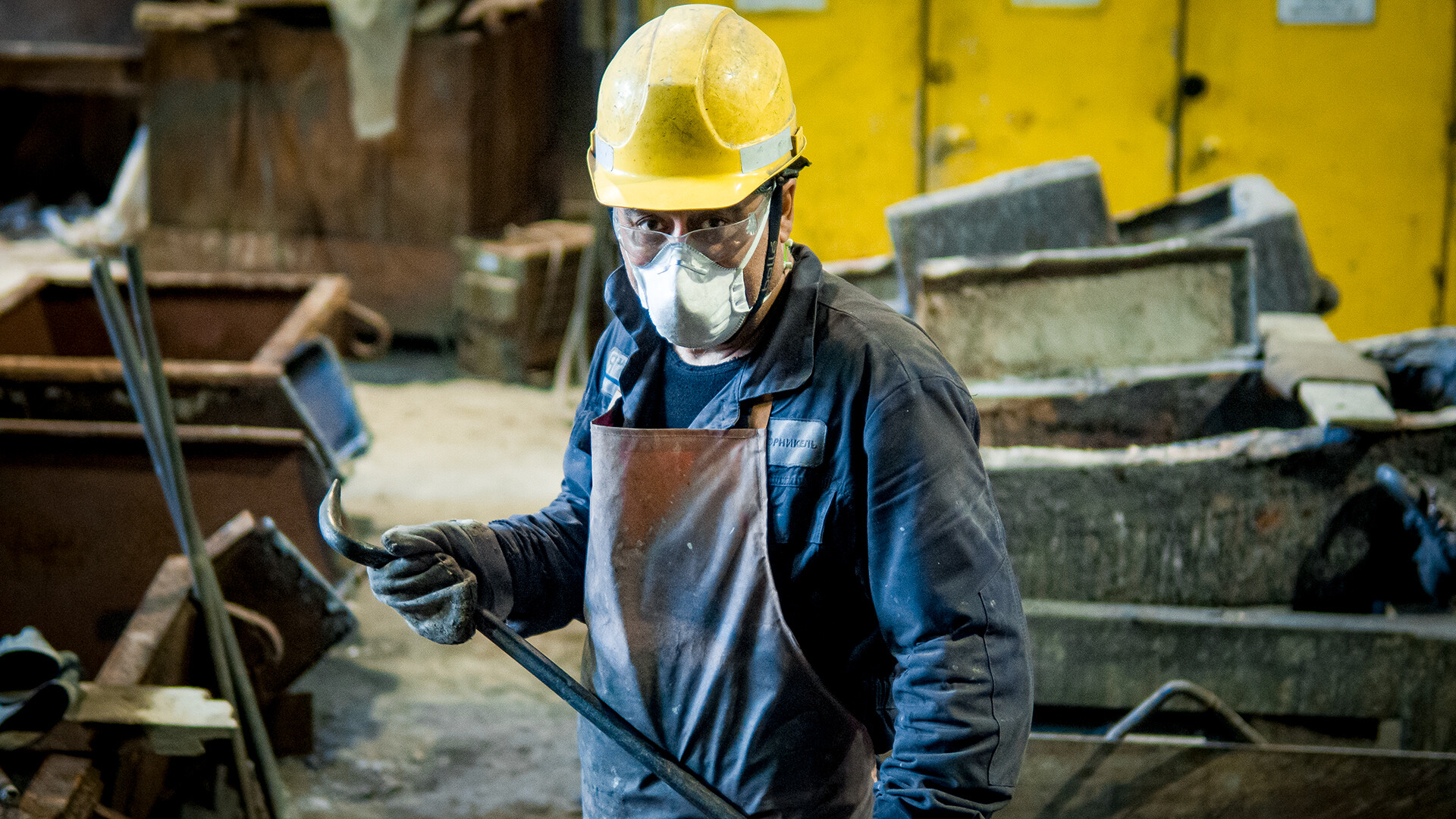
"Norilsk is forever in my heart and in my lungs," is what the locals here often say. The lives of many people here are tied up with the Norilsk Mining and Metallurgical Combine (part of the Norilsk Nickel company), which employs about half of the city's 175,000 population.
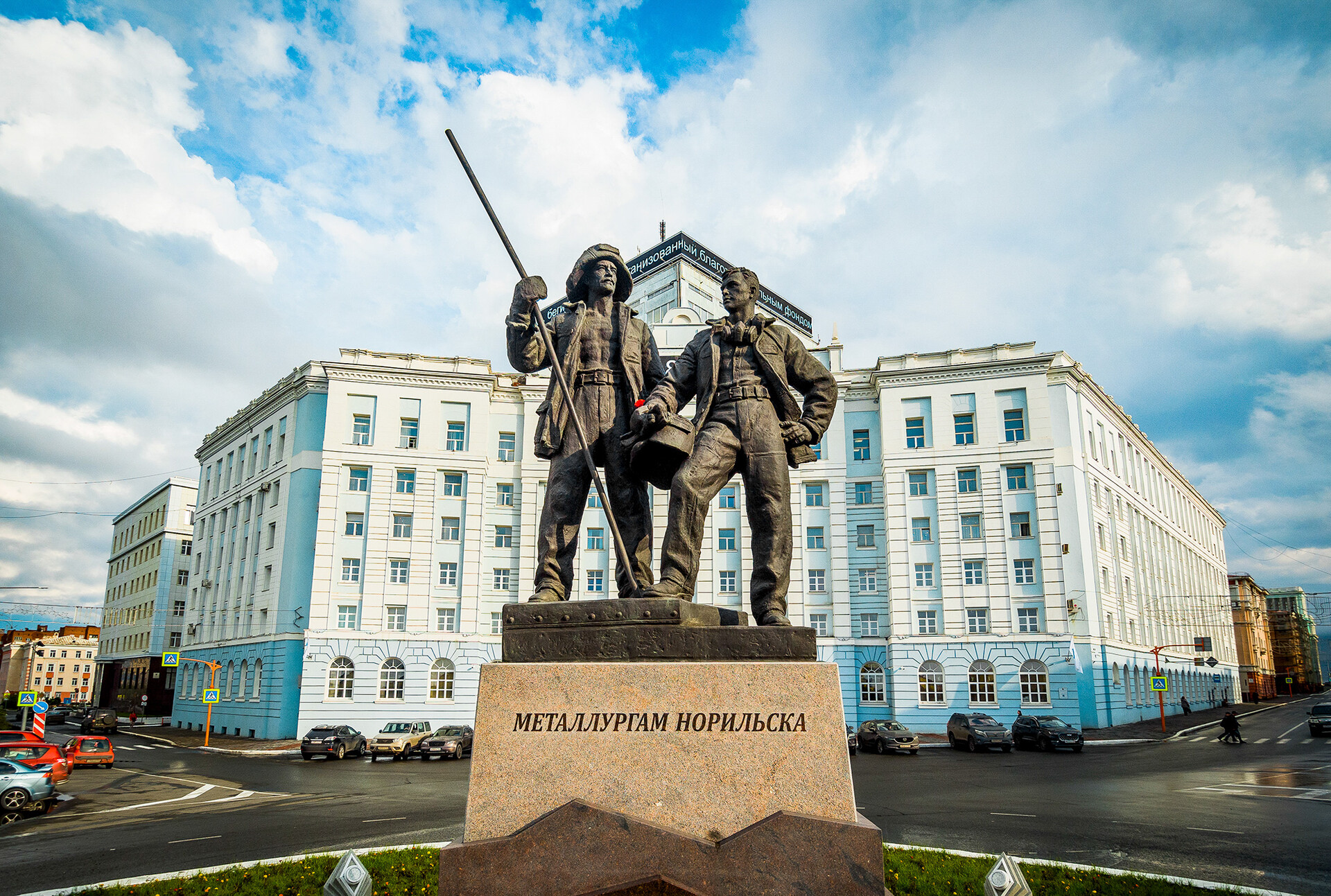 A monument to metallurgists in Norilsk.
A monument to metallurgists in Norilsk.
Among them are miners who extract ore, factory engineers, logistics specialists and many others.
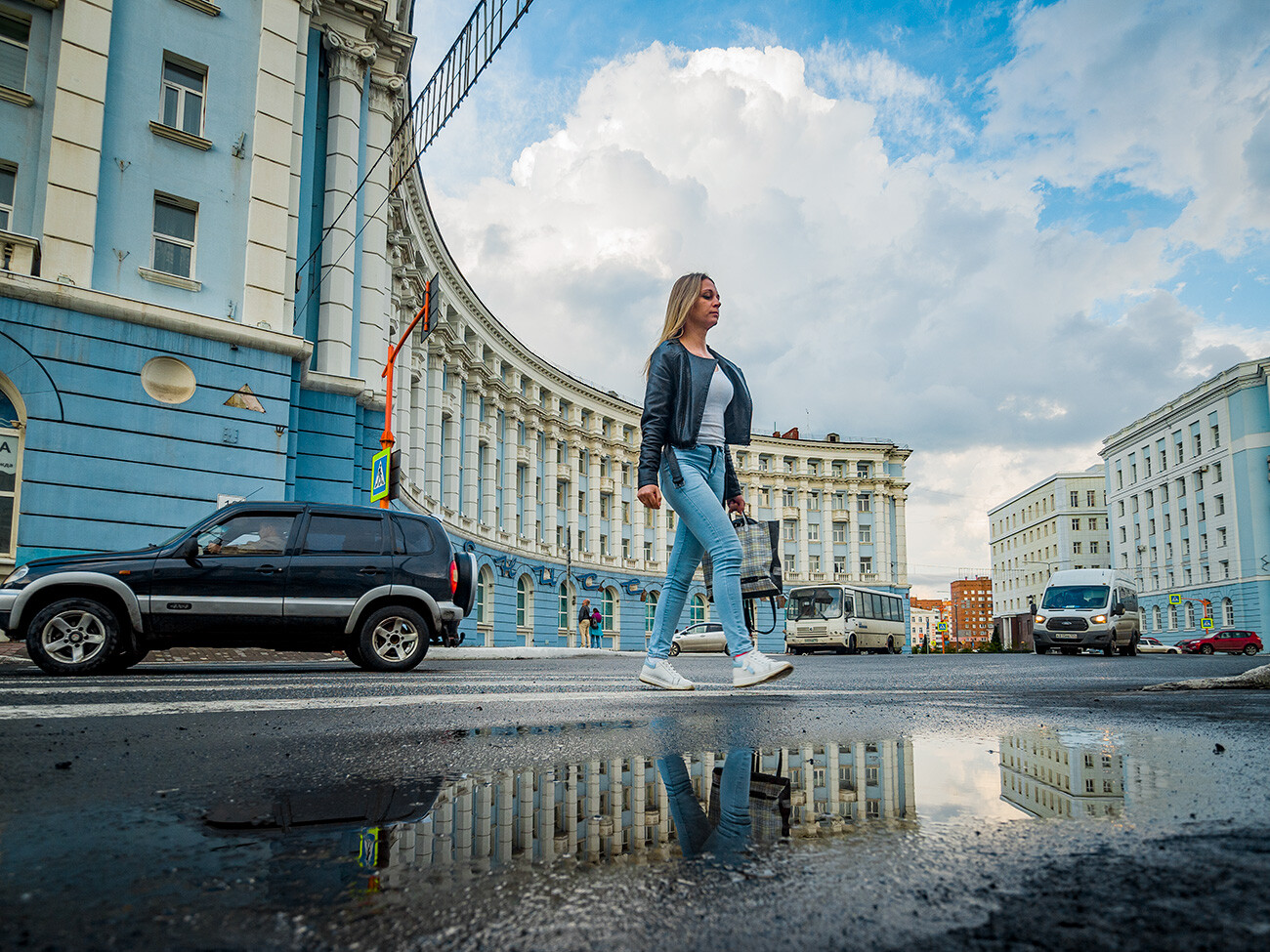 In the center of Norilsk.
In the center of Norilsk.
We visited the copper plant, then met a man who became a parfumier after 10 years of working in the mines and we discovered what coffee made with reindeer meat (wait, what!?) tastes like.
How copper is created
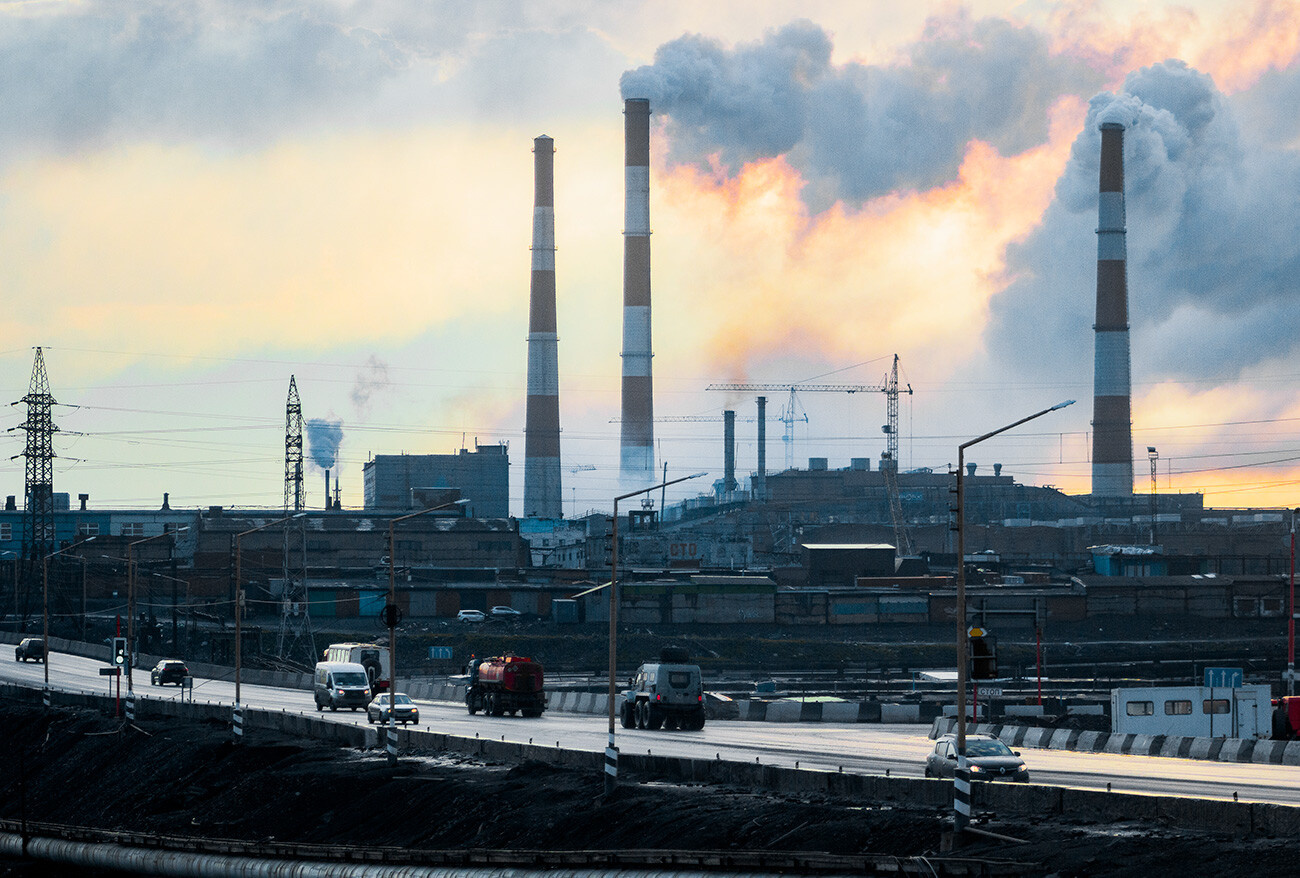 Obviously, people are working. That's where we're going now.
Obviously, people are working. That's where we're going now.
The copper plant began operating back in 1949. The first thing that hits you when you approach the plant is the smell of sulfur and even its taste. Sulfur dioxide is a byproduct of the smelting furnaces and, the closer you get to the production unit, the stronger the odor becomes.
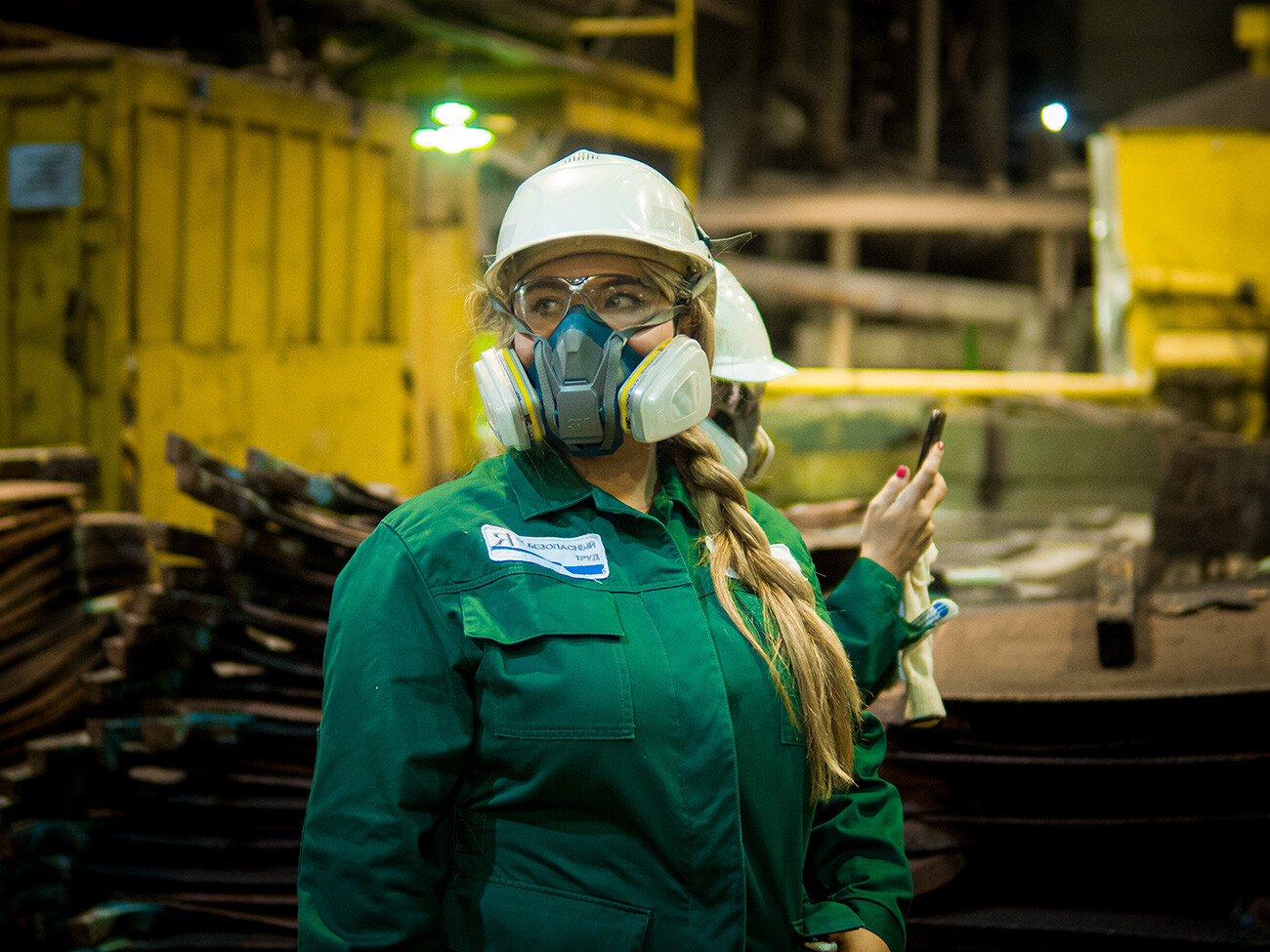 You cannot enter the workshop without a respirator, helmet and safety goggles. Every employee of the plant has special clothing.
You cannot enter the workshop without a respirator, helmet and safety goggles. Every employee of the plant has special clothing.
As we were told at ‘Nornickel’ (‘Norilsk Nickel’), the company has developed a so called ‘Sulfur Program’: By the end of 2023, sulfur is to be captured and neutralized with limestone, producing gypsum that can be used for the production of construction mixes. In the long run, emissions are projected to go down by 90 percent.
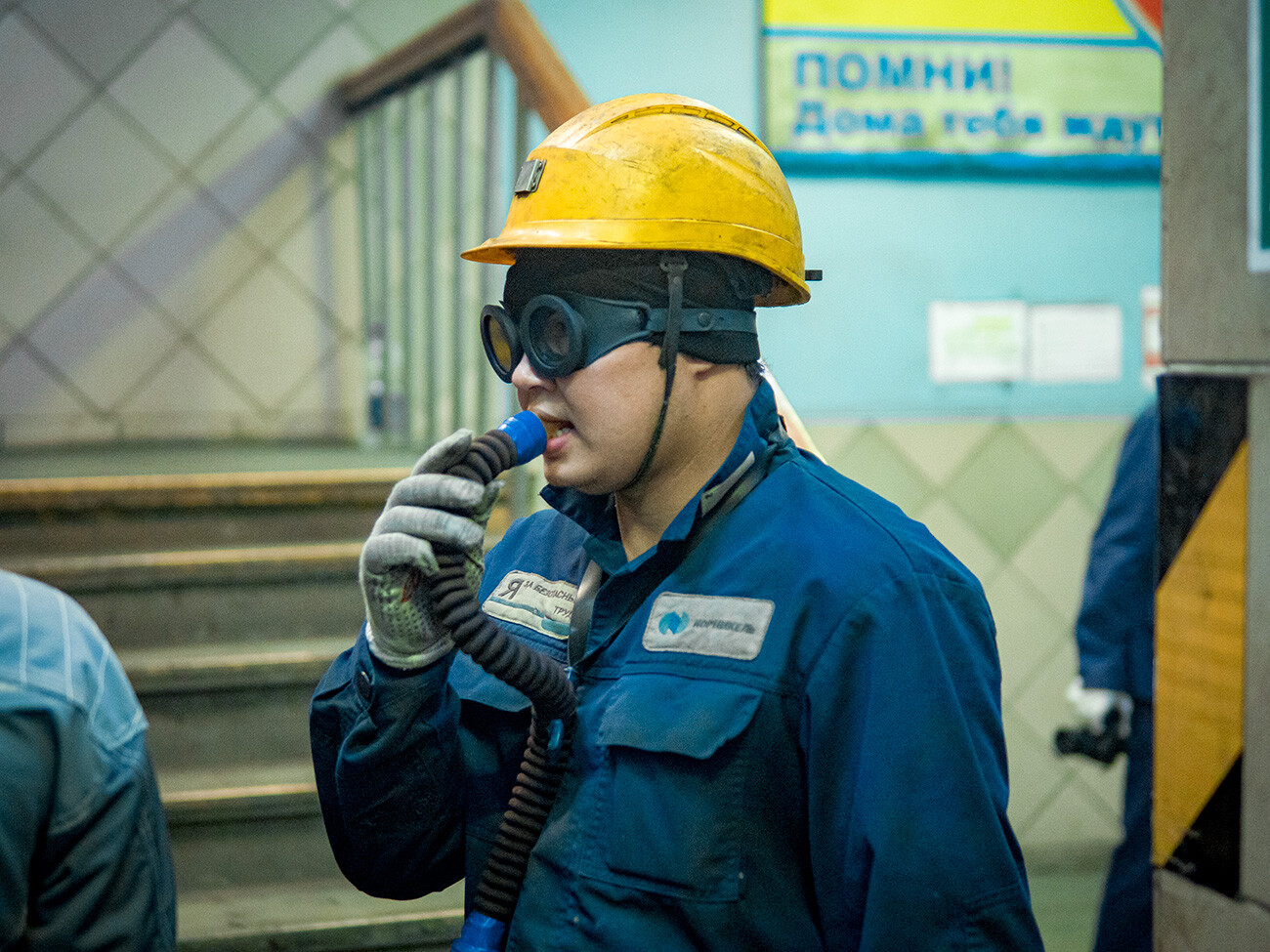
Because of the harmful substances, some workers go around the smelting unit wearing not just respirators, but even hose masks. Against the backdrop of the converters smelting copper concentrate and giving off epic sparks, it looks like something from a dystopian movie.
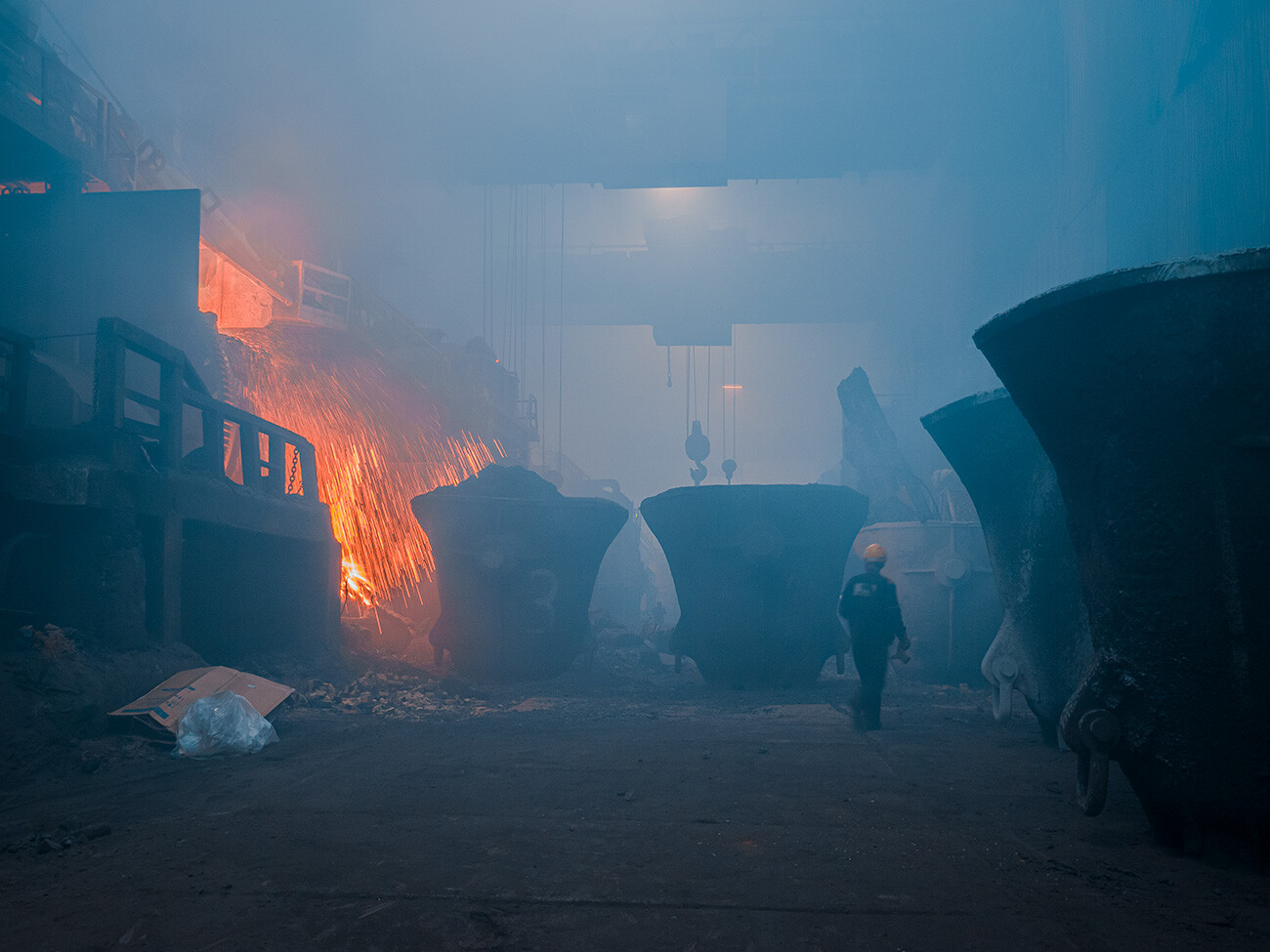 The furnaces are working, the copper is melting.
The furnaces are working, the copper is melting.
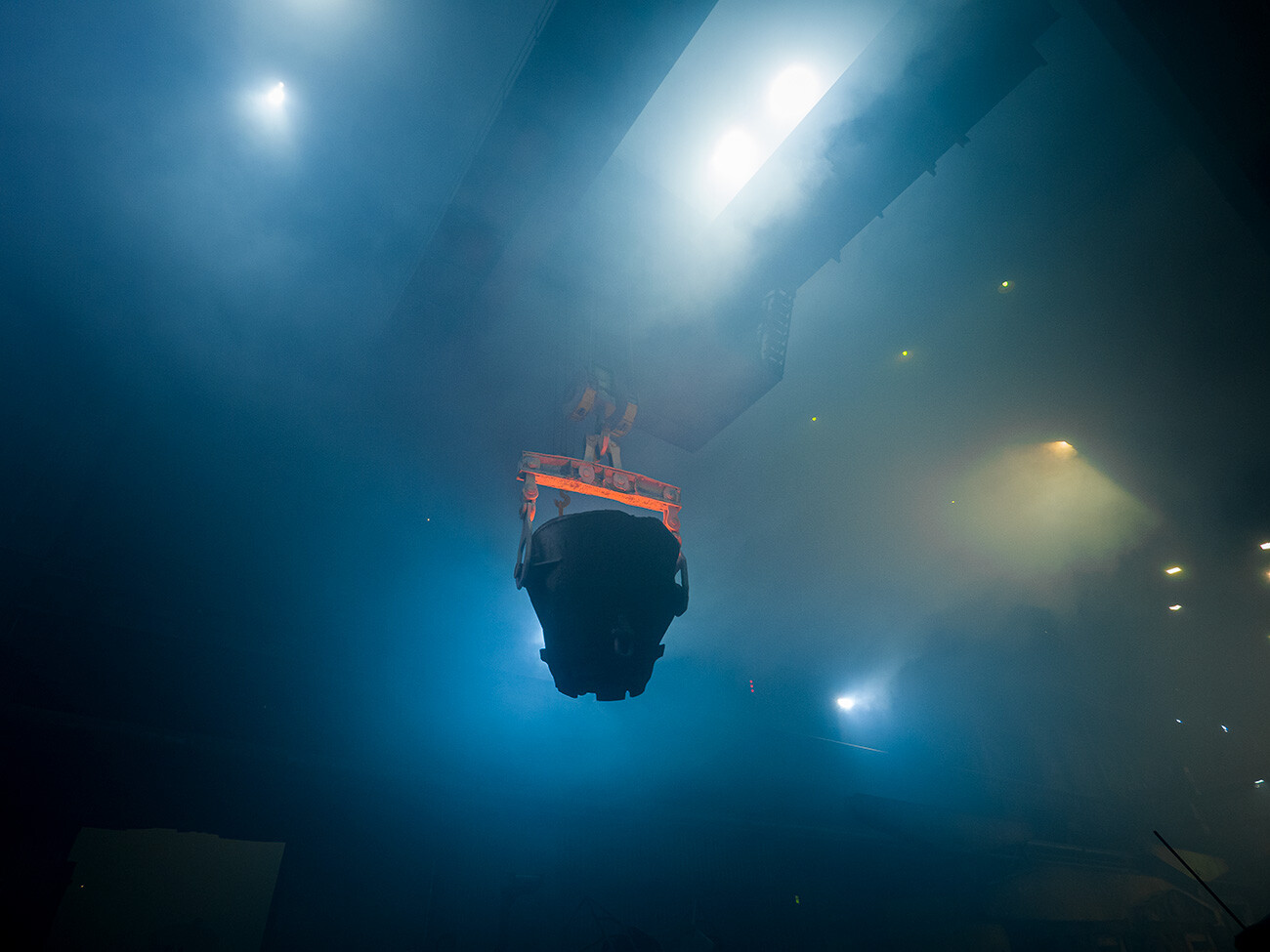
Molten copper is transferred by ladle to the furnace to produce anode copper free of impurities.
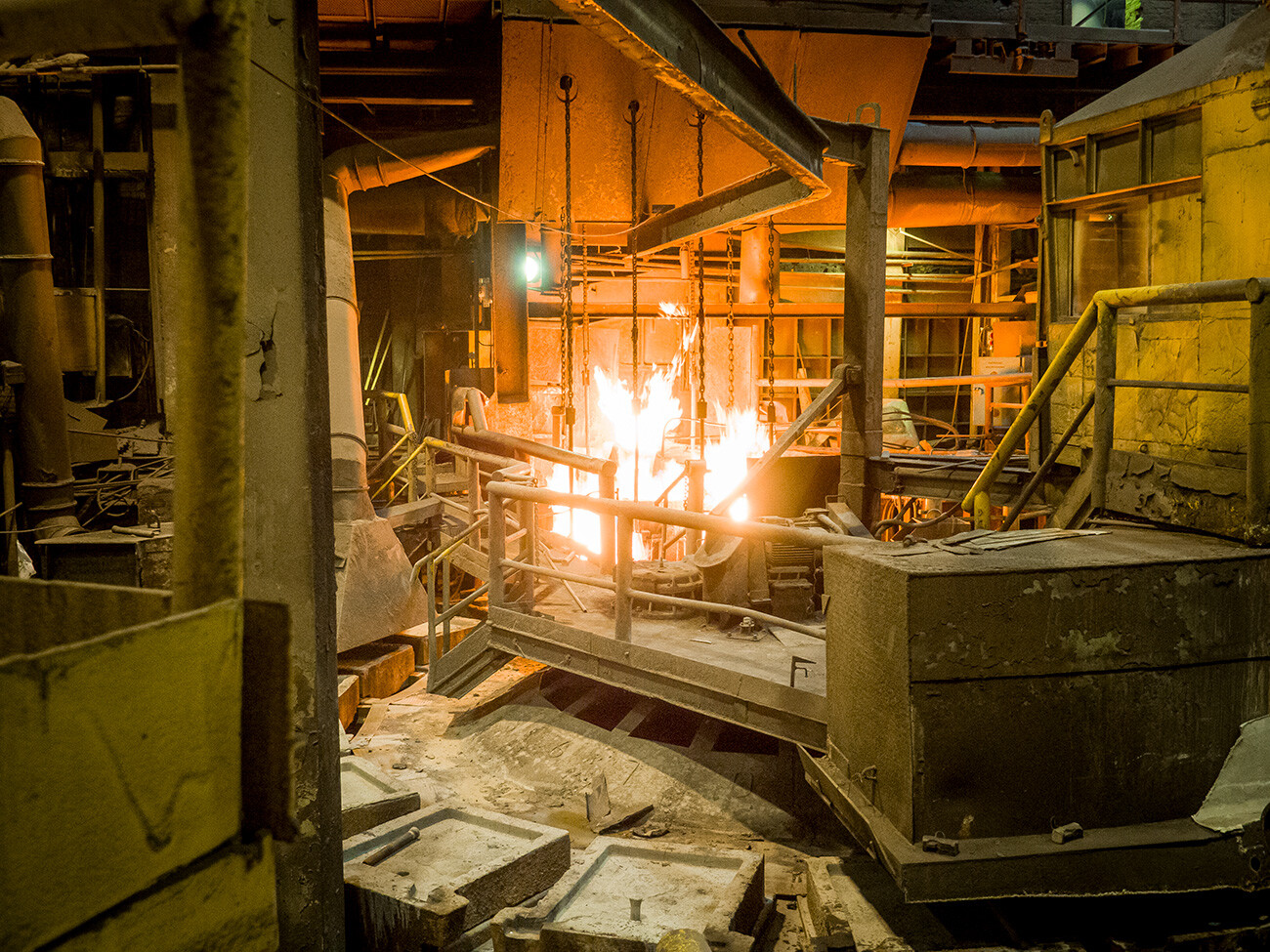
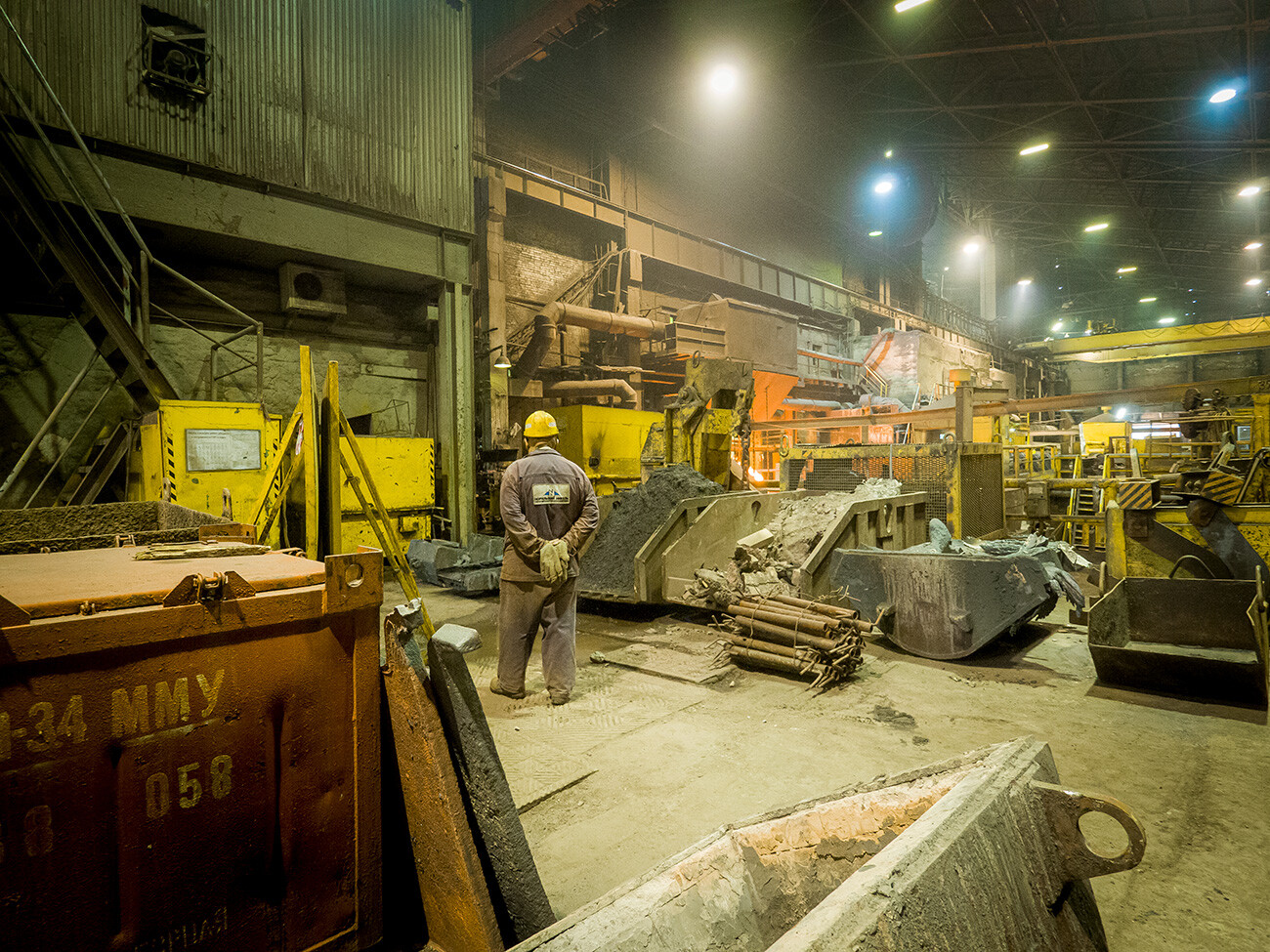
The copper smelting temperature is more than 1,000 degrees Celsius, so it is very hot on the shop floor, despite the powerful ventilation.
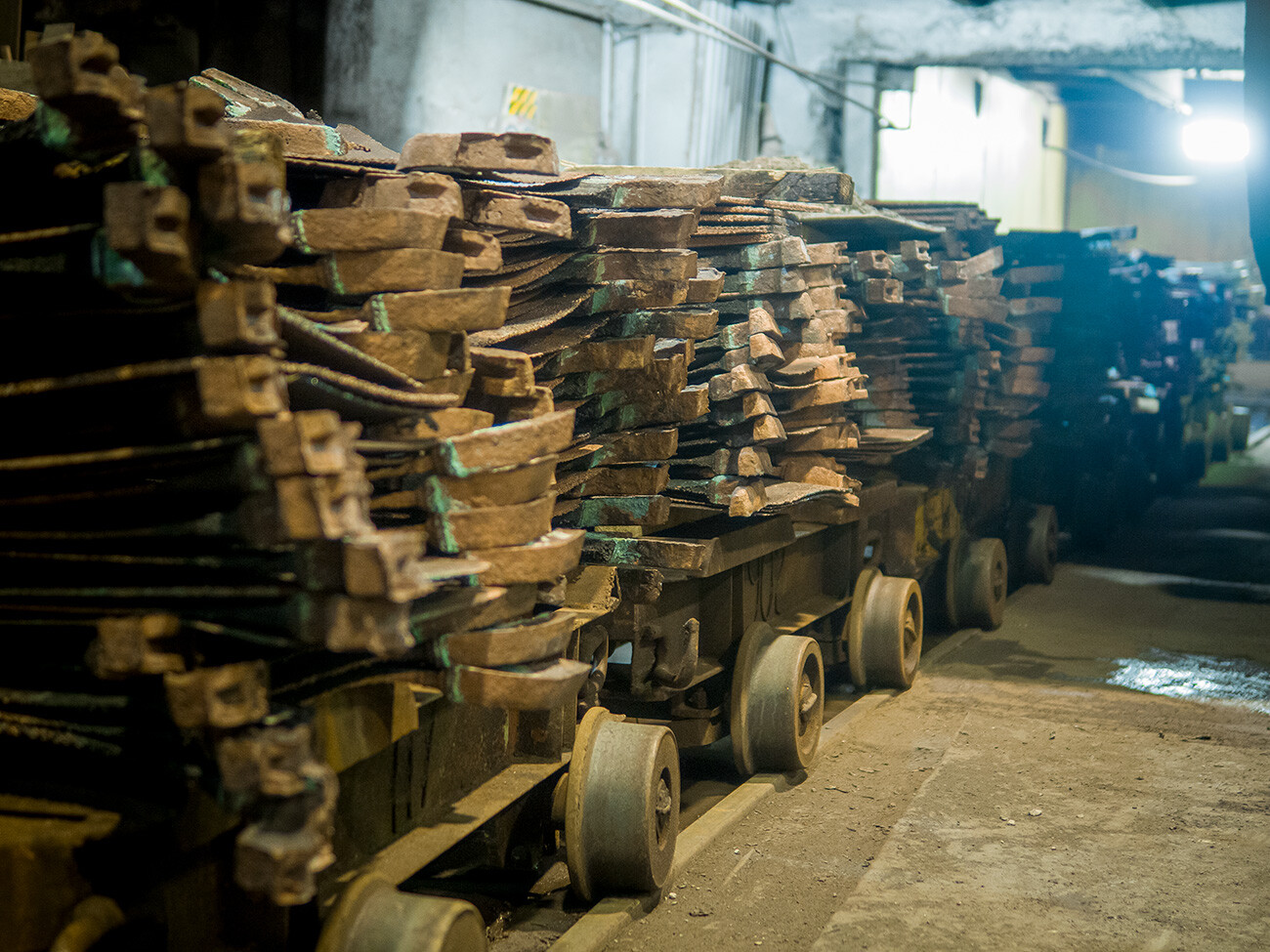 These are the kind of copper "semis" that will soon go swimming in sulfur baths.
These are the kind of copper "semis" that will soon go swimming in sulfur baths.
The anode material is poured into molds and carried on wagons to the electrolysis unit.
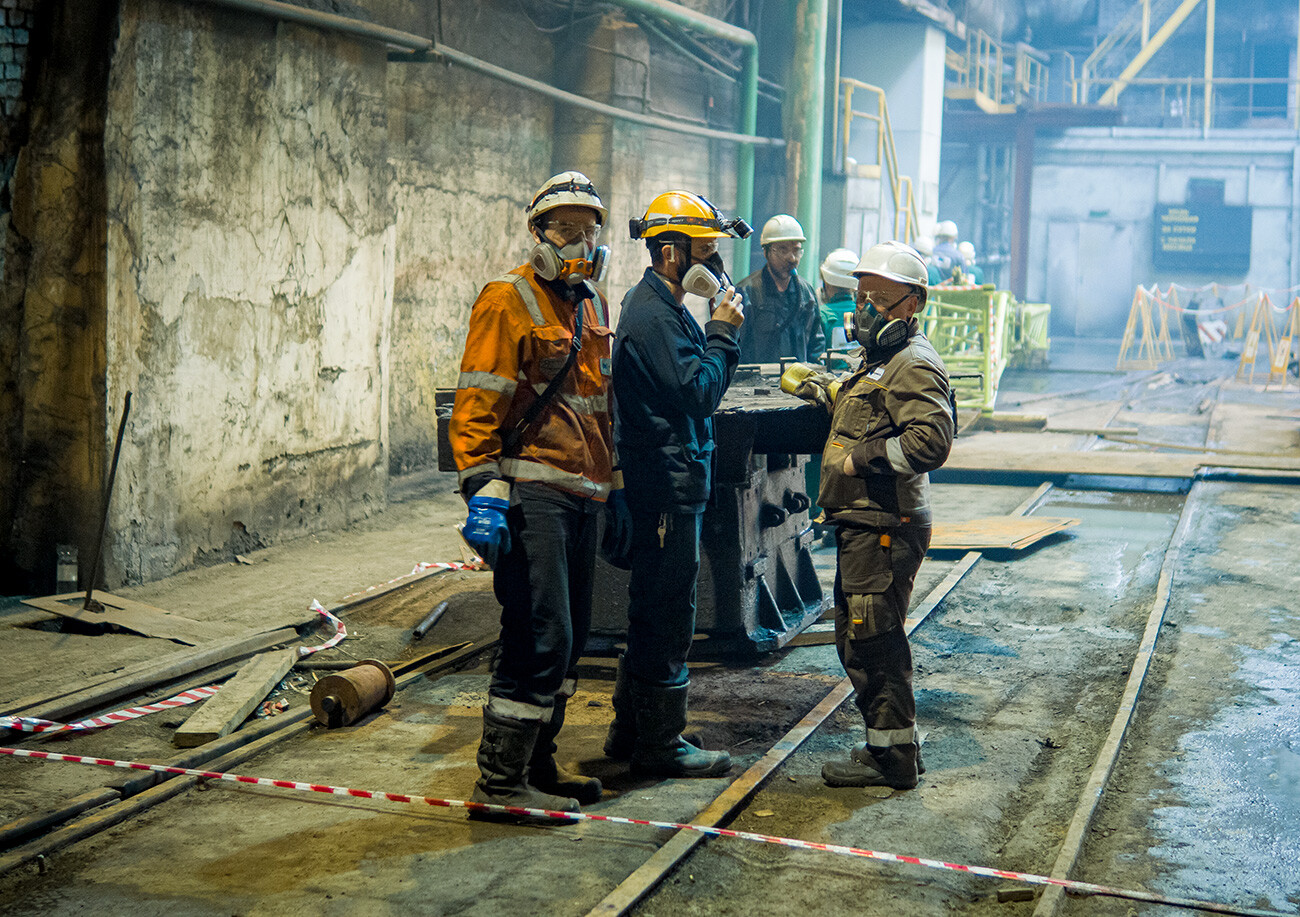 "Oh, the paparazzi, who's going to do the work?"
"Oh, the paparazzi, who's going to do the work?"
There, it is submerged in baths of sulfuric acid for three weeks, resulting in the plant's end product: sheets of pure copper.
Time to seek out the quarry
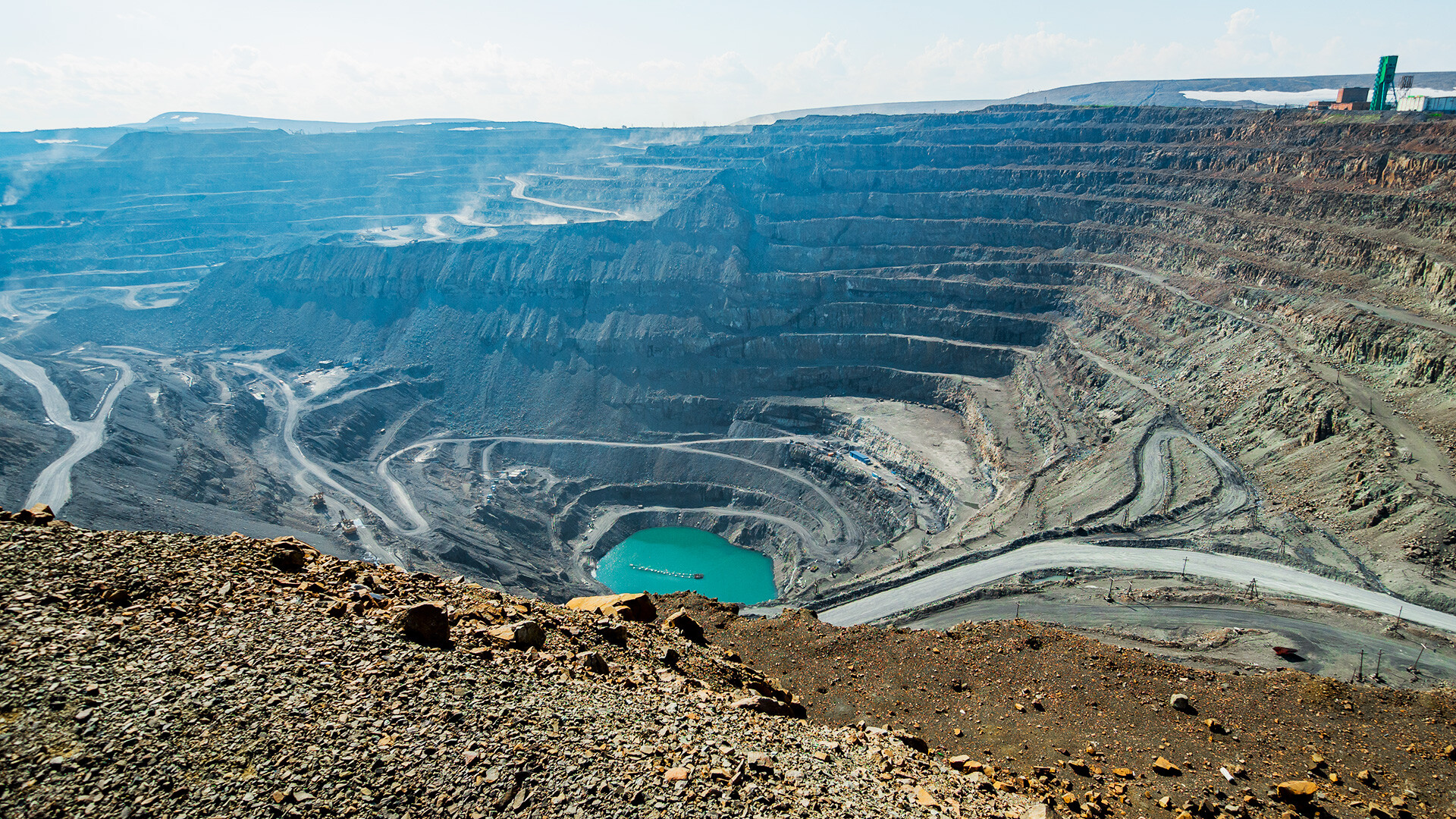 Like this one.
Like this one.
Most of Norilsk ore is mined at a depth of 700-900 meters (in some places up to 2,000 meters!). But, Norilsk also has a quarry - called ‘Medvezhy Ruchey’ (literally ‘Bear's Brook’) - near the Zapolyarny ore mine. As of today, it is the only place where Norilsk ore is extracted by open-pit mining.
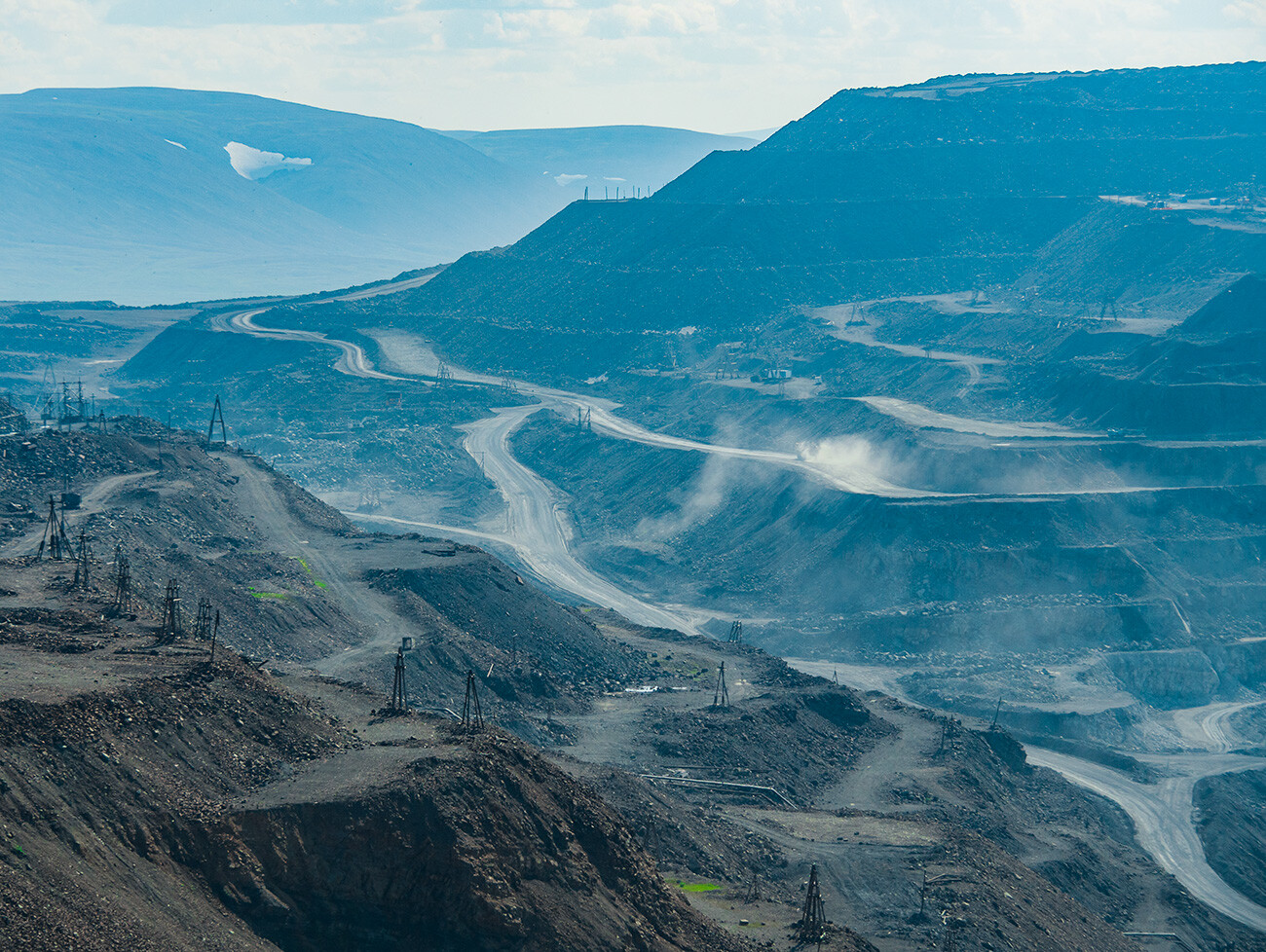 It's all manmade.
It's all manmade.
"Our ore is, of course, unique," says Artyom Melkov, the mine's chief engineer. "It contains 15 minerals, of which we extract nine. They are non-ferrous metals: copper, cobalt, nickel, platinum, gold and others." According to present-day estimates, the vicinity of Norilsk holds about 40 percent of the world's reserves of platinoids, 35 percent of nickel, 15 percent of cobalt and 10 percent of copper.
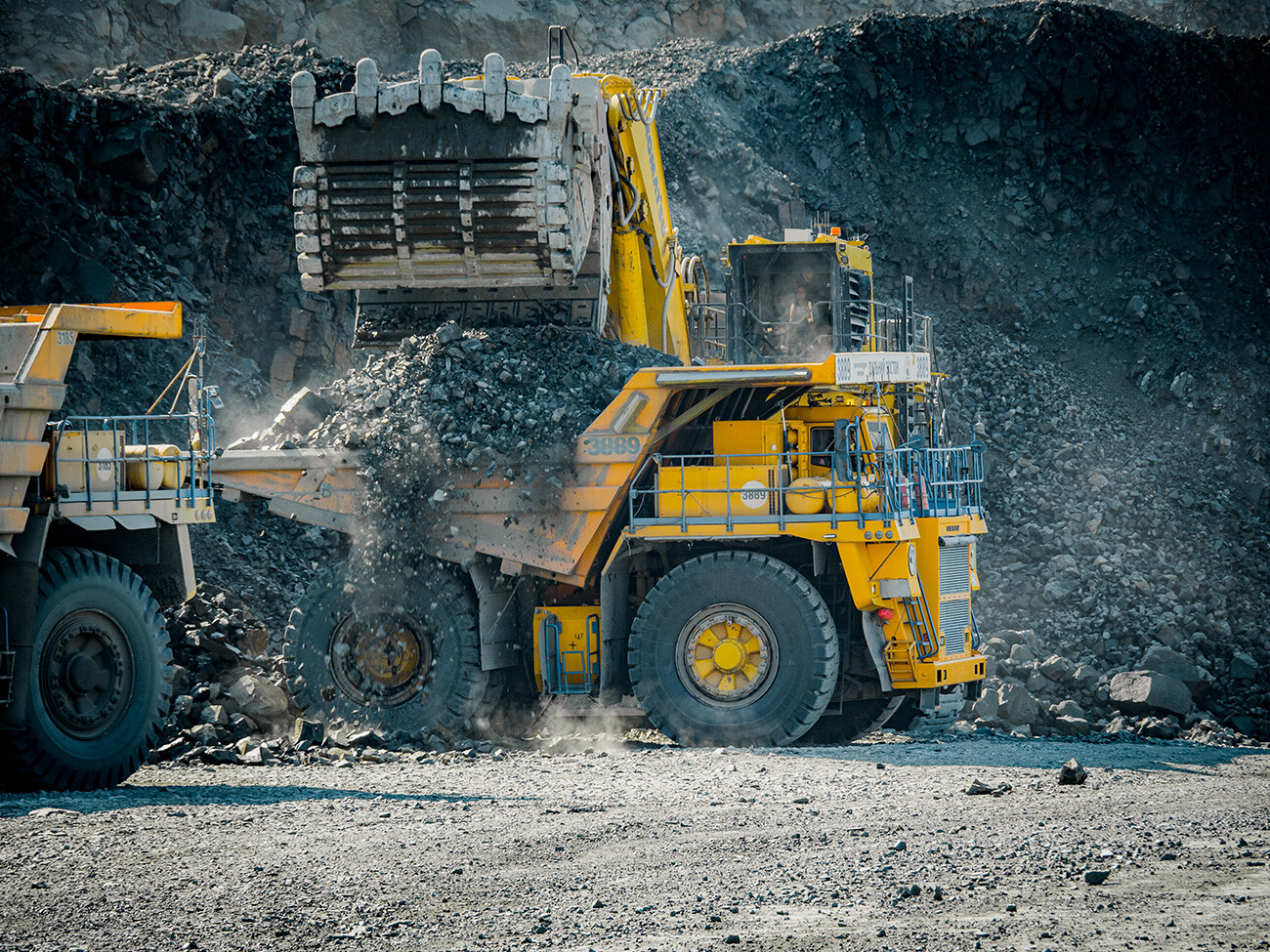 One such truck can hold 130 tons.
One such truck can hold 130 tons.
The ore lies inside a mountain and, in order to get to it, the mountain needs to be "stripped" using explosives. Then, the ore is taken away by enormous ‘BelAZ’ dump trucks, with one wheel alone towering higher than a human at 4 meters and weighing 5.5 tons, (the weight of an African elephant!). After that, the ore is sent to the dressing plants where concentrate is extracted from it.
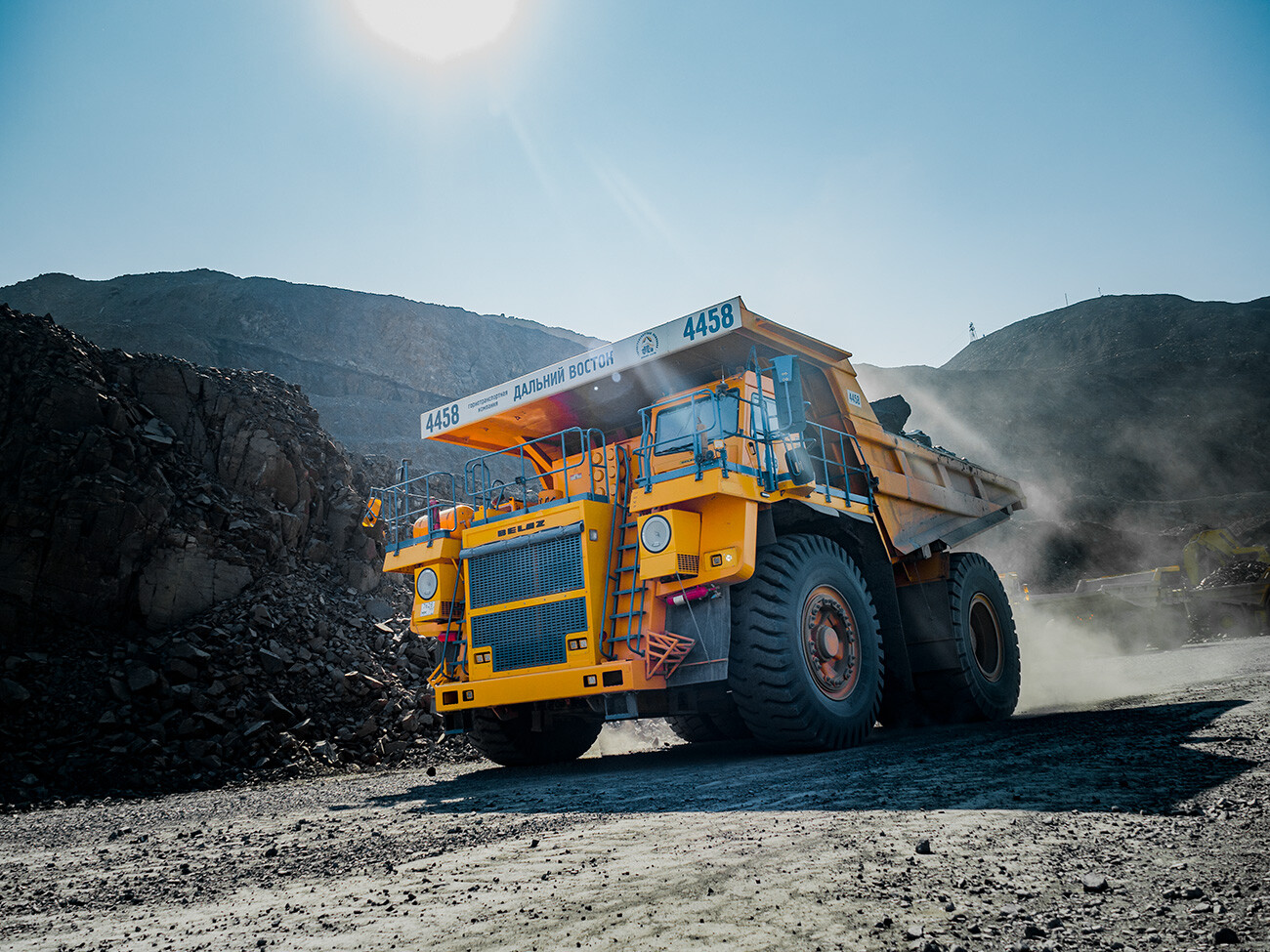
Copper concentrate is then taken to the copper plant, while nickel and pyrrhotite concentrates head to the Nadezhdinsky Metallurgical Plant.
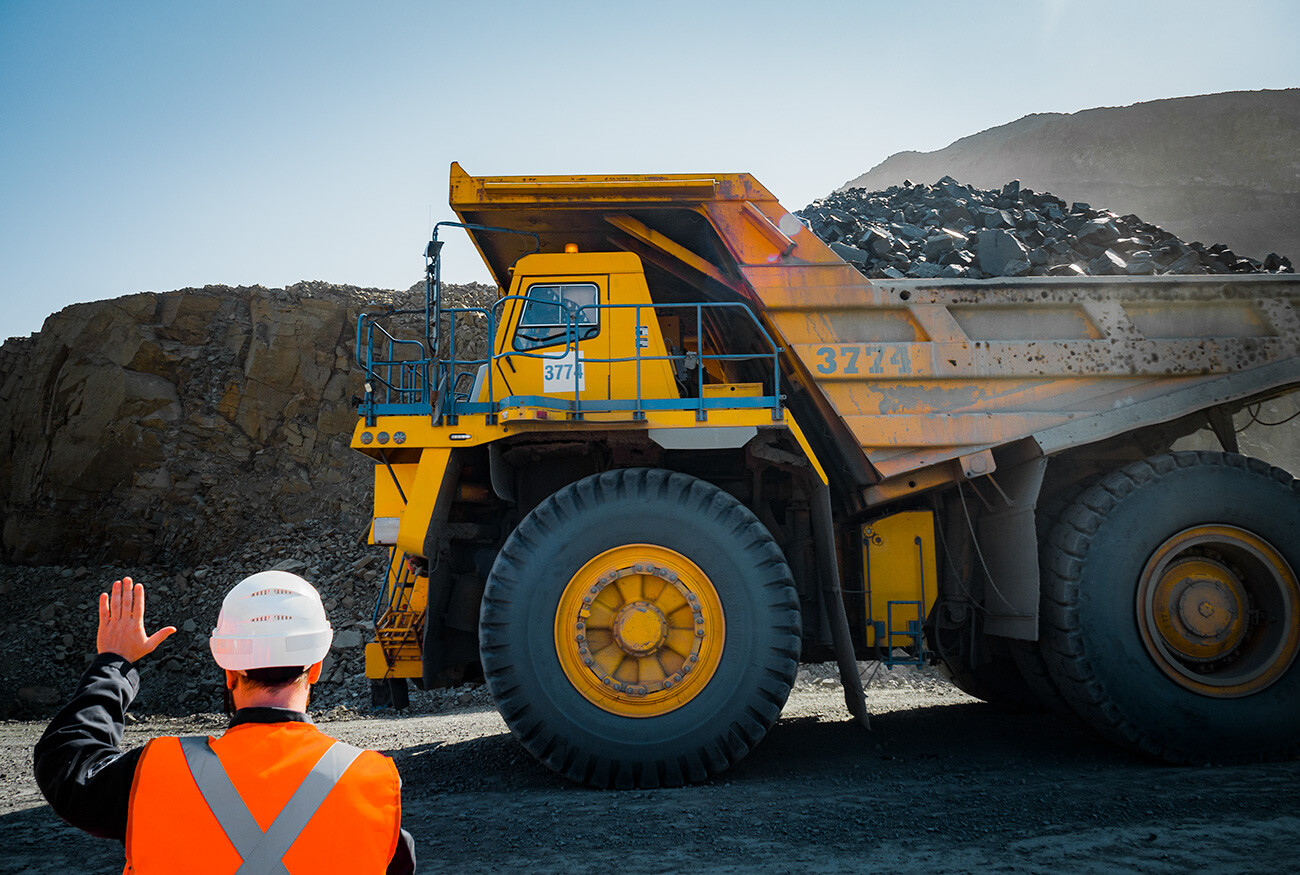
Production work at the plant is very demanding, requiring constant concentration, so you won't get away with any slacking there. At the Norilsk plants, a breathalyzer test needs to be taken at the entrance (and when exiting, too, by the way). Despite the strict rules, people from all over the country go to work there, both on temporary contracts and for permanent positions.
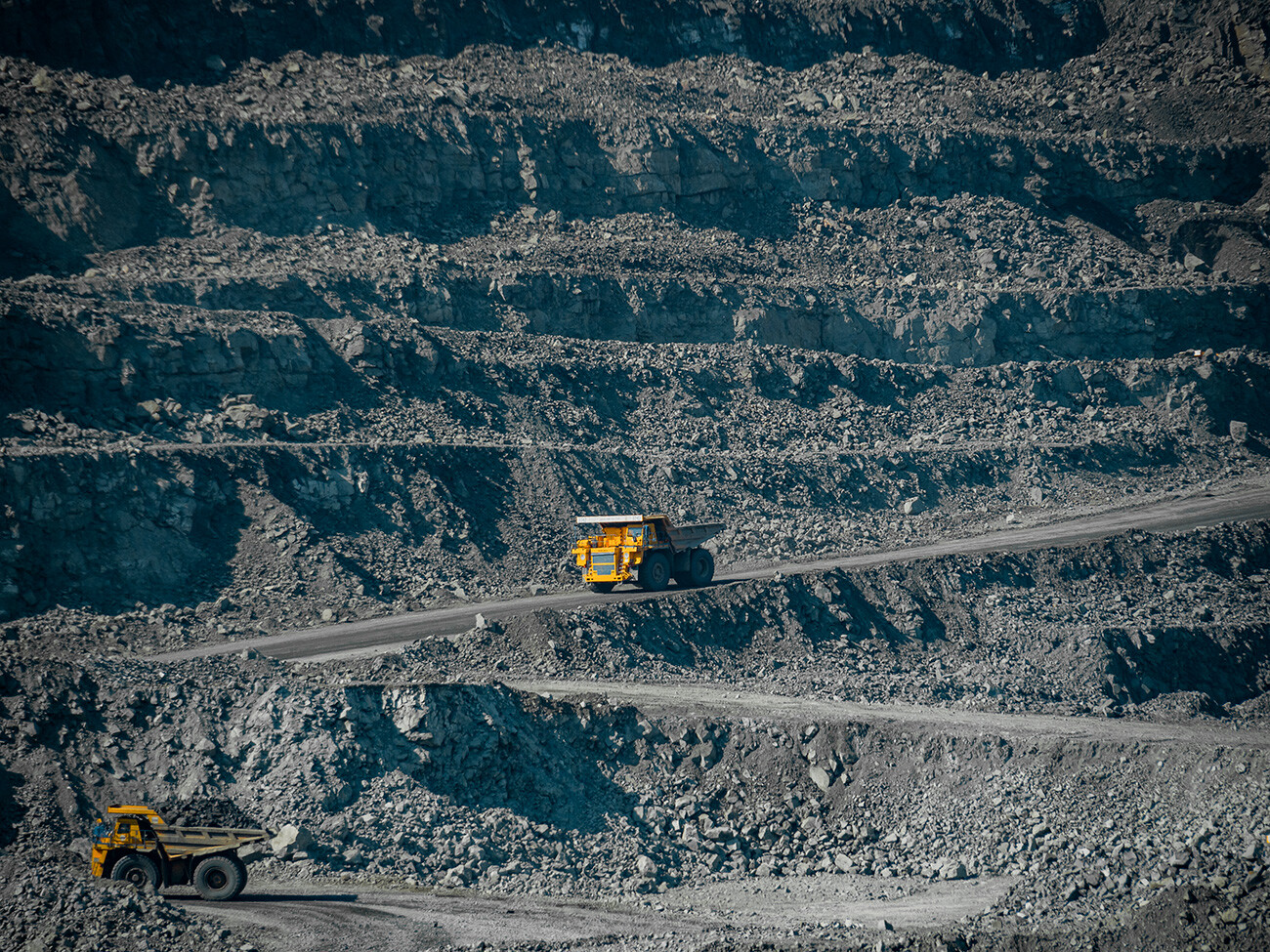
The salaries for industrial jobs are at least 50 percent higher than on the "mainland". For example, in the smelting unit, they start at 100,000 rubles a month (approx. $1,100).
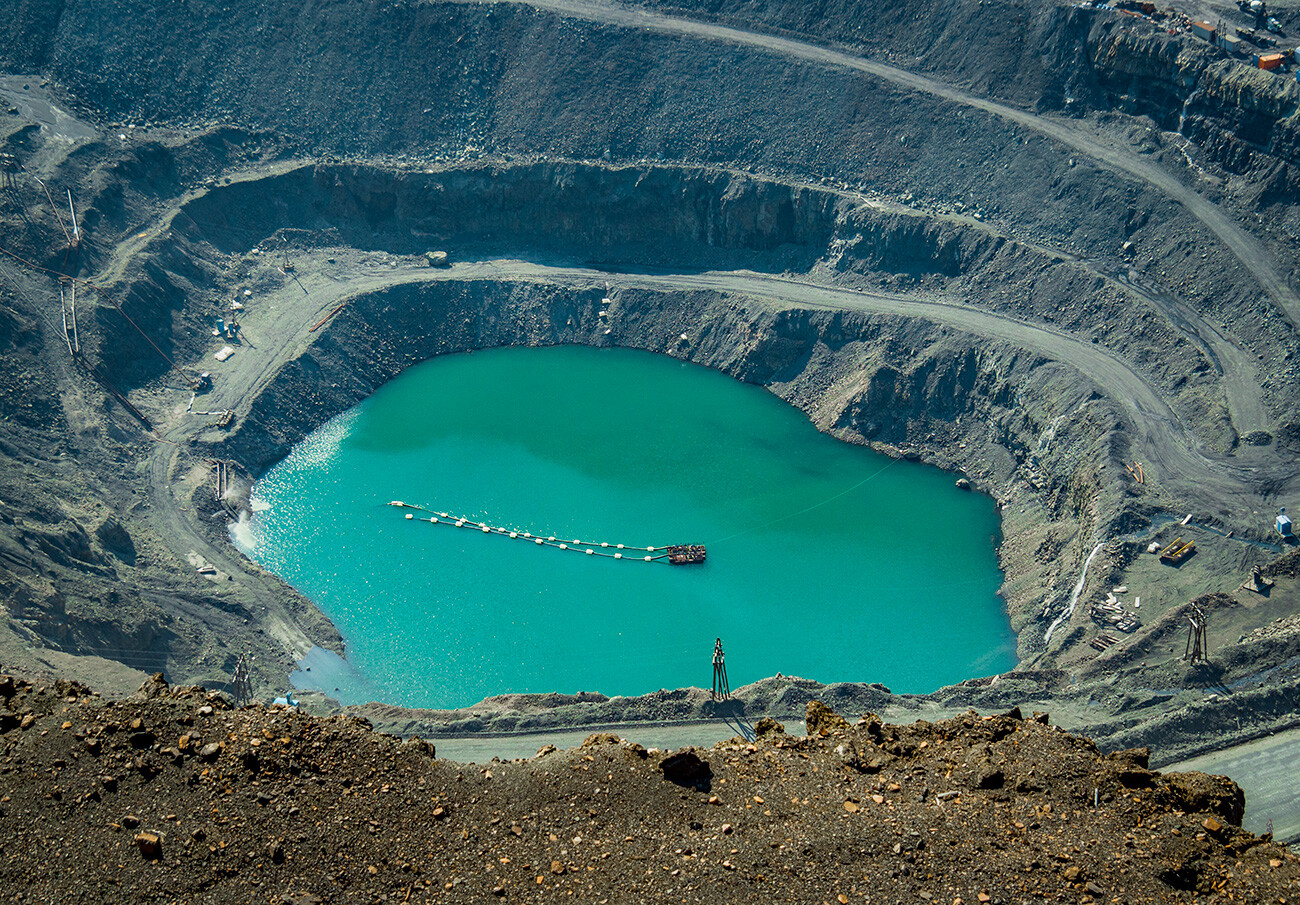
A taste of Norilsk
Anyway, the cost of living in Norilsk is also quite high, due to everything having to be shipped in. But, this doesn't mean that Norilsk doesn't have any local production at all.
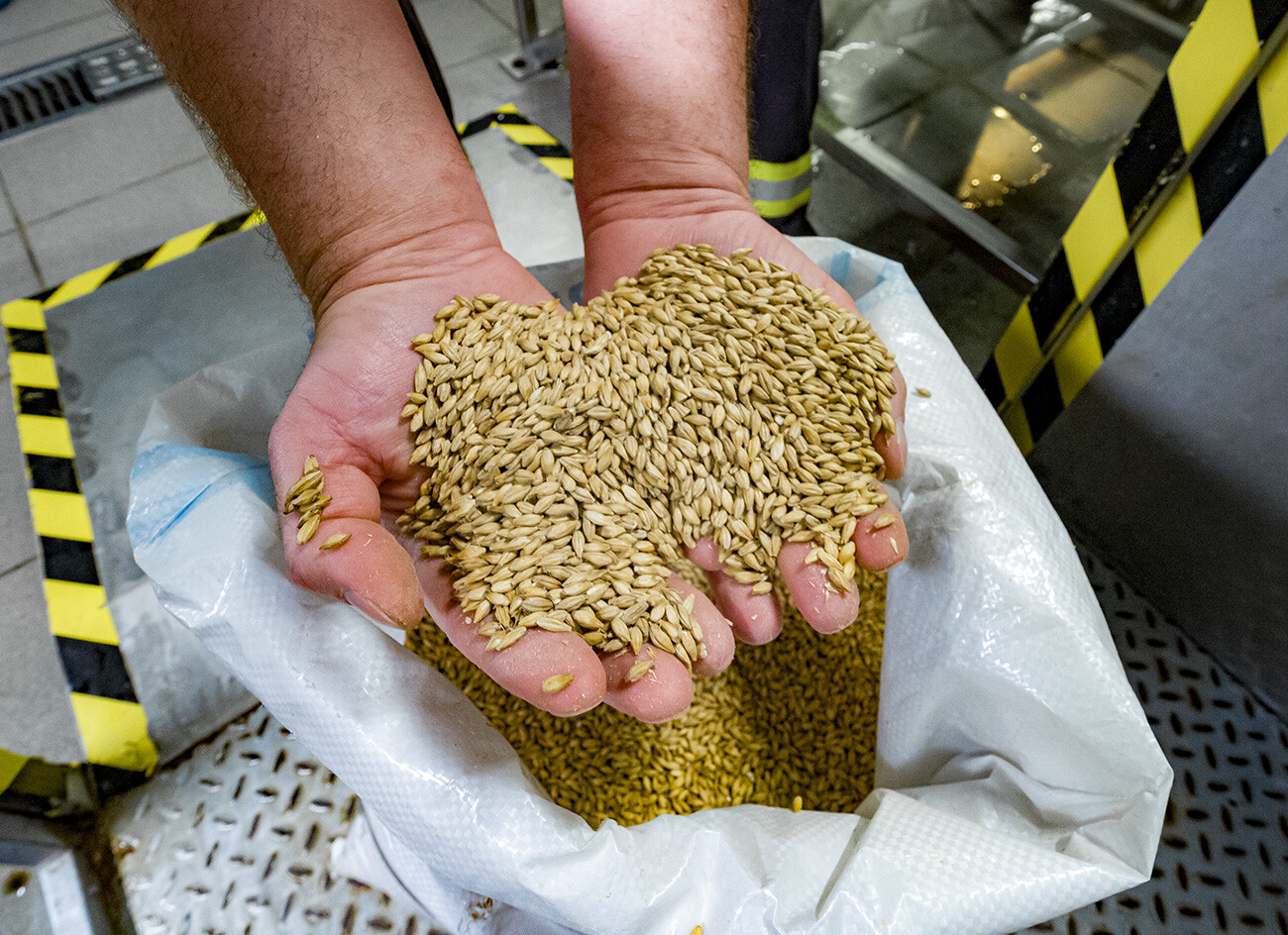 Norilsk factory where beer is brewed and soft drinks are made.
Norilsk factory where beer is brewed and soft drinks are made.
In restaurants, for example, in addition to traditional northern dishes like reindeer meat and ‘stroganina’ (slices of frozen raw fish served cold), you can also sample the local beer. It has been brewed there since 1944.
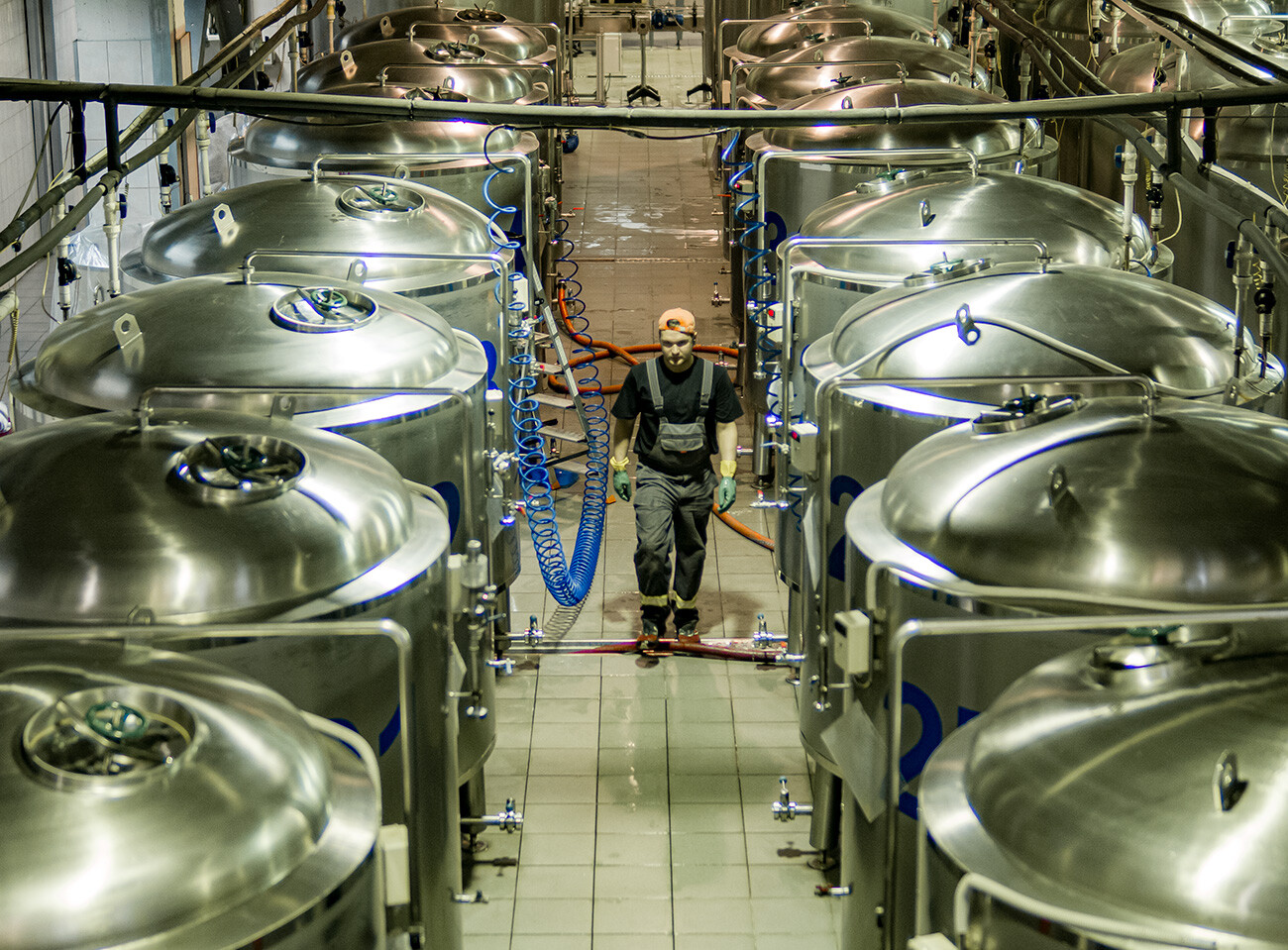 Production volumes are small, but shelf life is also short.
Production volumes are small, but shelf life is also short.
In the early 2000s, the former Soviet brewery closed down, due to the economic crisis. However, a modern brewery, with the same production engineer, opened in its place in 2009. The beverages produced are not shipped anywhere else, because of the limited production, as well as their short shelf life.
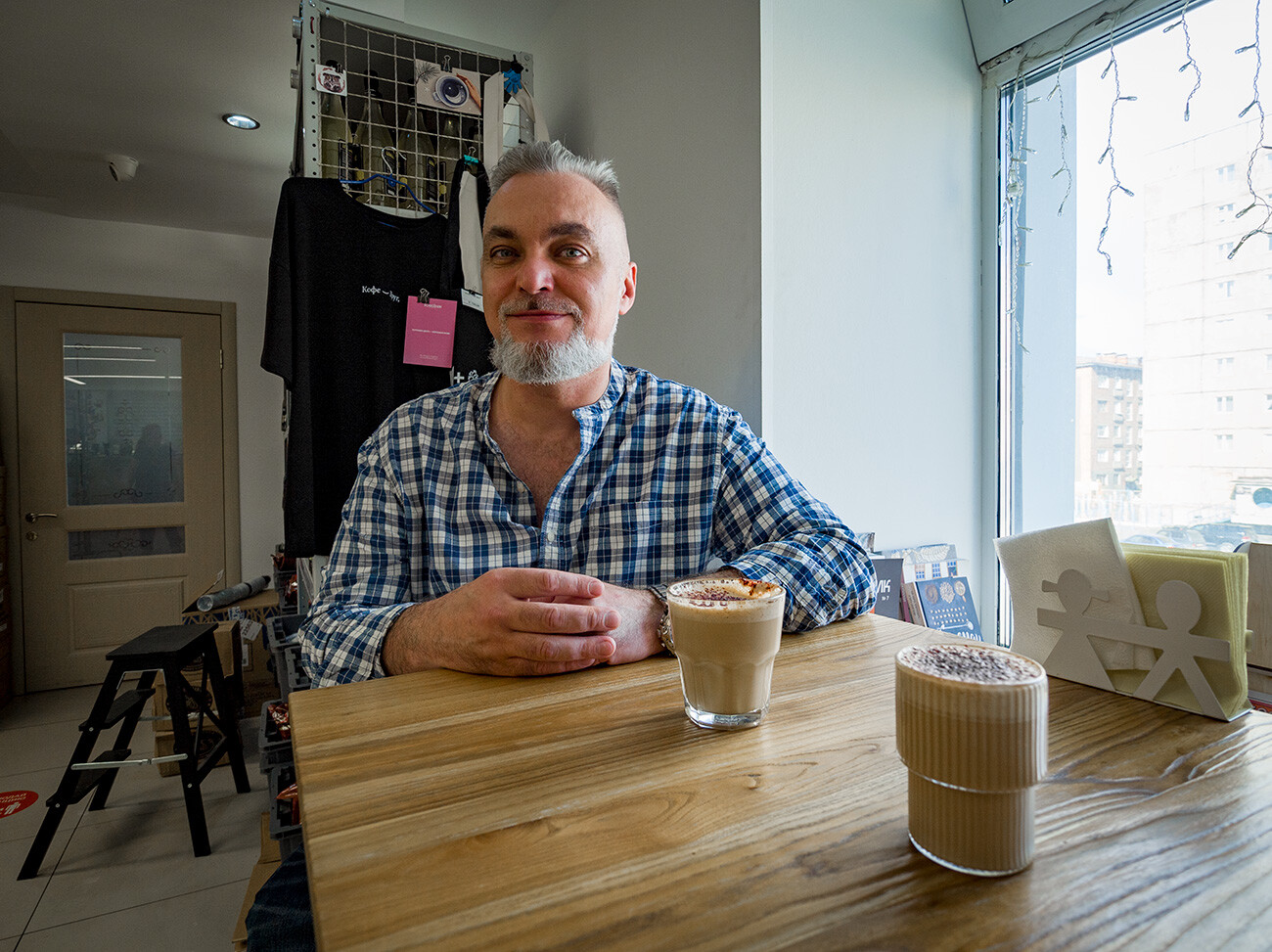 Sergei Serbin, founder of the Drug ('Friend') cafe. Chief expert of coffee in Norilsk.
Sergei Serbin, founder of the Drug ('Friend') cafe. Chief expert of coffee in Norilsk.
Coffee fans in Norilsk will find what is perhaps the most unusual coffee variety - with ground dried reindeer meat (‘yukola’, as it is known by the locals). "In consistency, dried reindeer meat is reminiscent of dark chocolate," explains Sergei Serbin, the inventor of the beverage. And there are further variants: A drink called ‘Tundra’ contains cloudberries and lingonberries, while ‘Severnoye Siyanie’ (‘Northern Lights’) has mint and eucalyptus. "You can taste the breath of the Arctic," says Sergei.
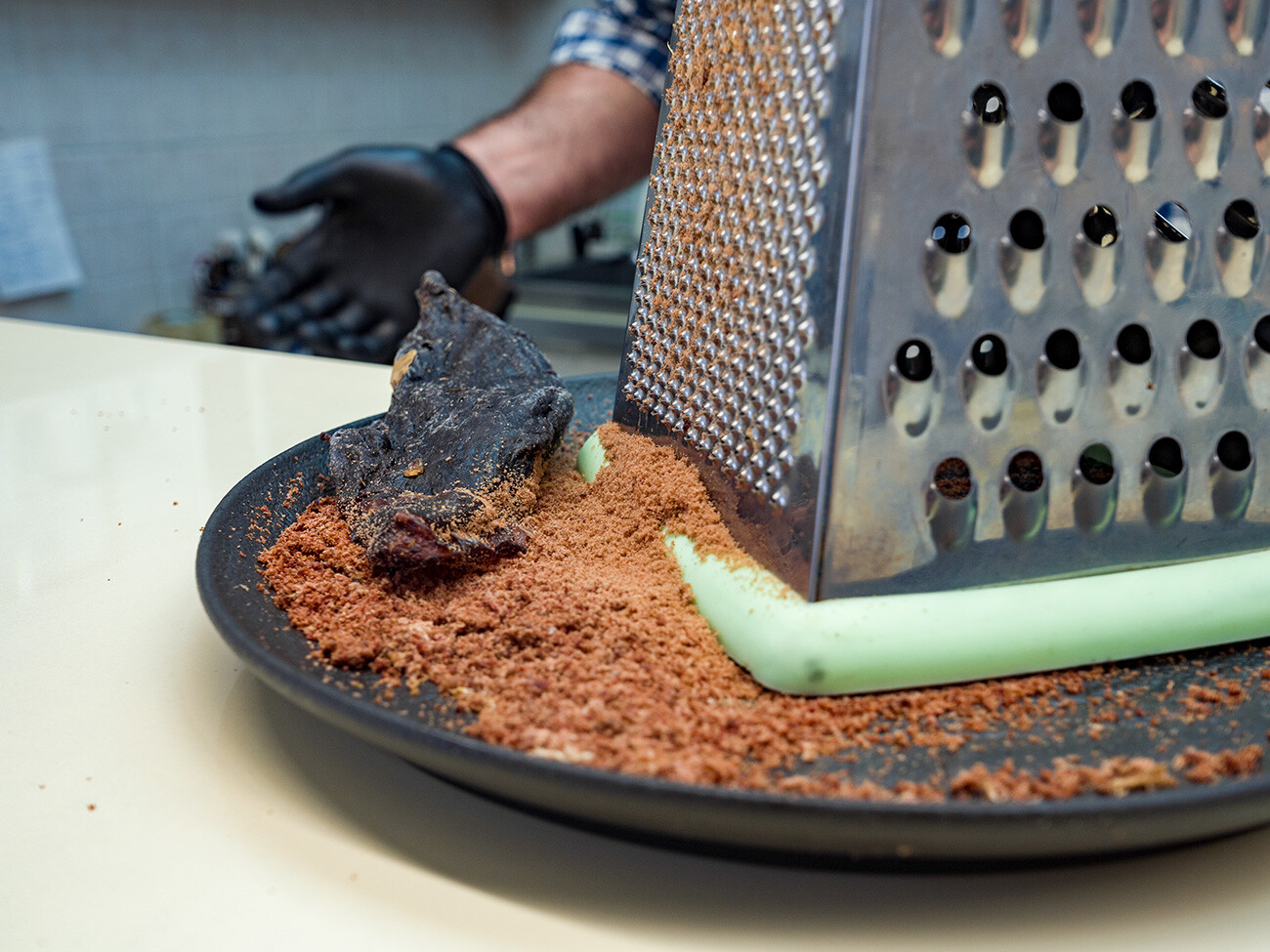 This is what grated yukola looks like.
This is what grated yukola looks like.
If a desert is needed to go with coffee, what better than to serve ice cream (even in the Arctic!)? In Norilsk, you can also find it made with reindeer meat, although, at first sight, it looks like ‘Plombir’ (milk) ice cream, sprinkled with chocolate chips! It was created by Norilsker Nina Fedotova, a self-professed fan of northern cuisine.
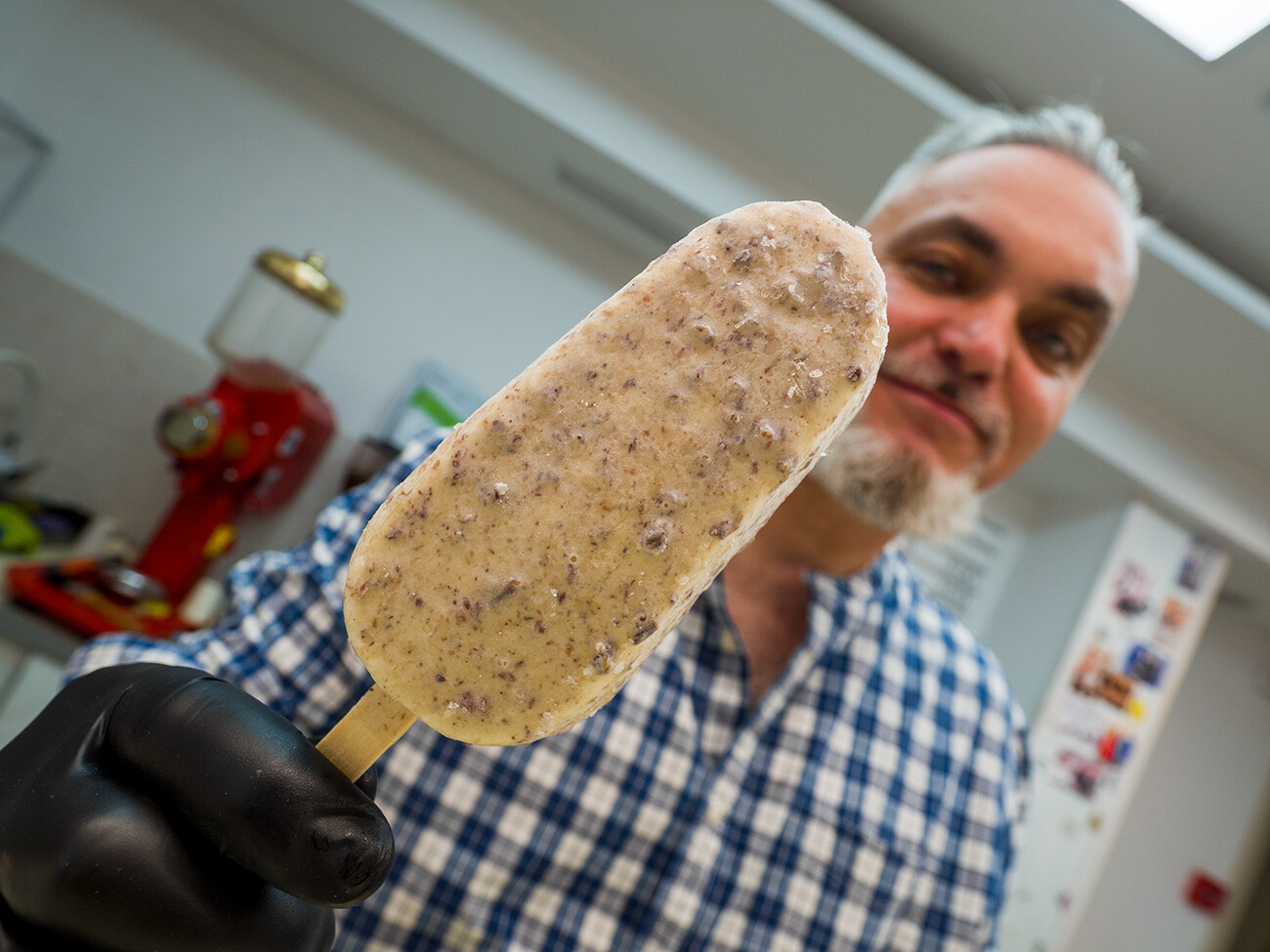 And this is ice cream with venison.
And this is ice cream with venison.
Former miner Alexander Shapovalov, meanwhile, decided that the inhabitants of Norilsk were very short of fresh vegetables. In his greenhouses, he grows cucumbers and other greens.
What is the scent of Taymyr?
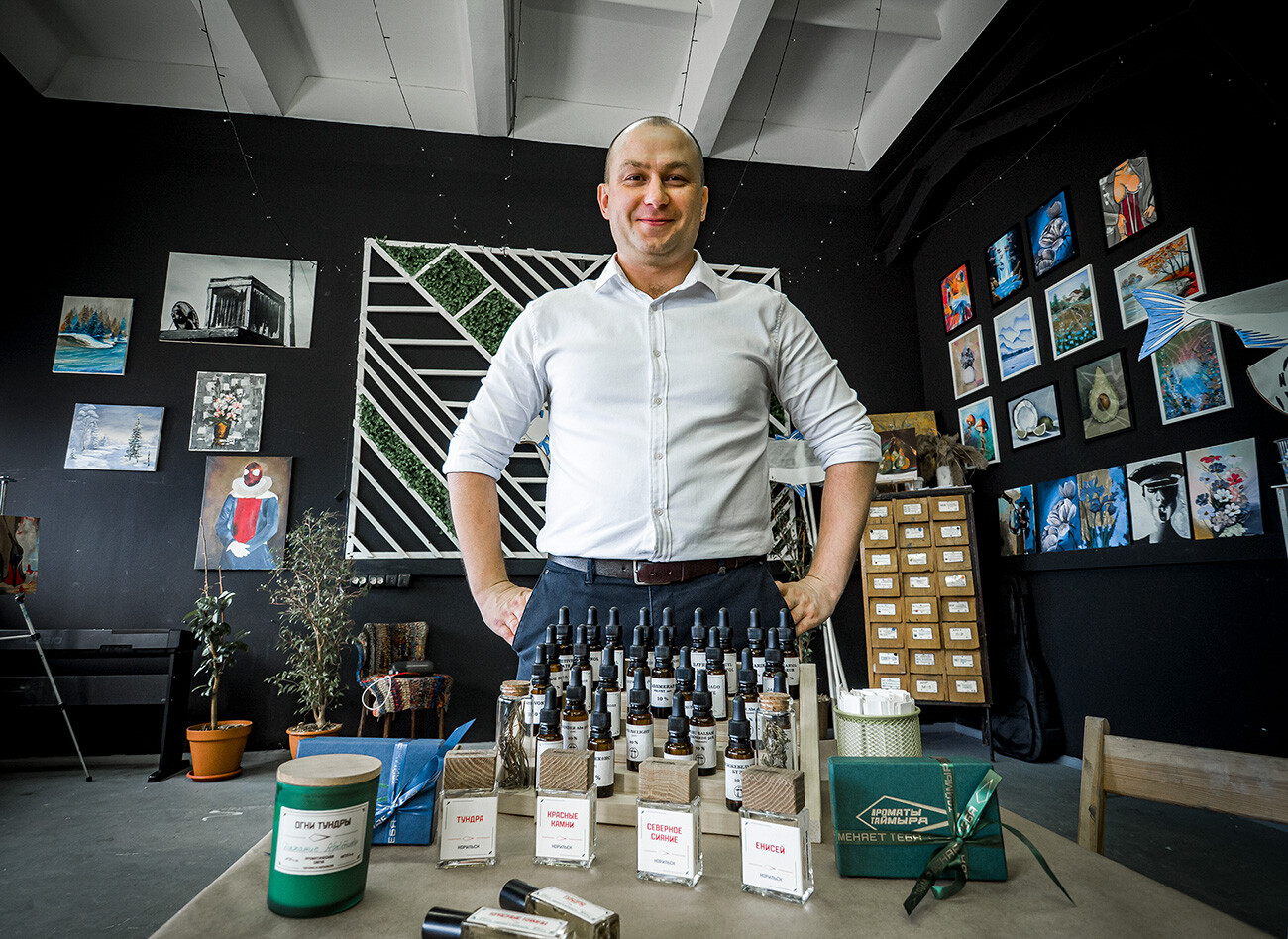 Alexei conducts master classes in Norilsk, where he talks about the subtleties of perfumery art.
Alexei conducts master classes in Norilsk, where he talks about the subtleties of perfumery art.
Alexei Boltachev, another former miner, has become one of the most northerly perfumiers. He ended up in this profession following a full 10 years in the mines of Norilsk. Alexei came to Norilsk from Udmurtia (Central Russia) in 2010 to follow his "great love". His wife was born there. "I told her, I was willing to go to the end of the earth with her. And the end of the earth is where I ended up," he says.
A few years ago, he became interested in making fragrances. "Perfumery is all about fantasy and emotion in a bottle and those are things frequently in short supply in our everyday lives," he says. "I find nature in Taymyr to be a great inspiration: the brief summer, harsh winter and the vivid colors of the Northern Lights."
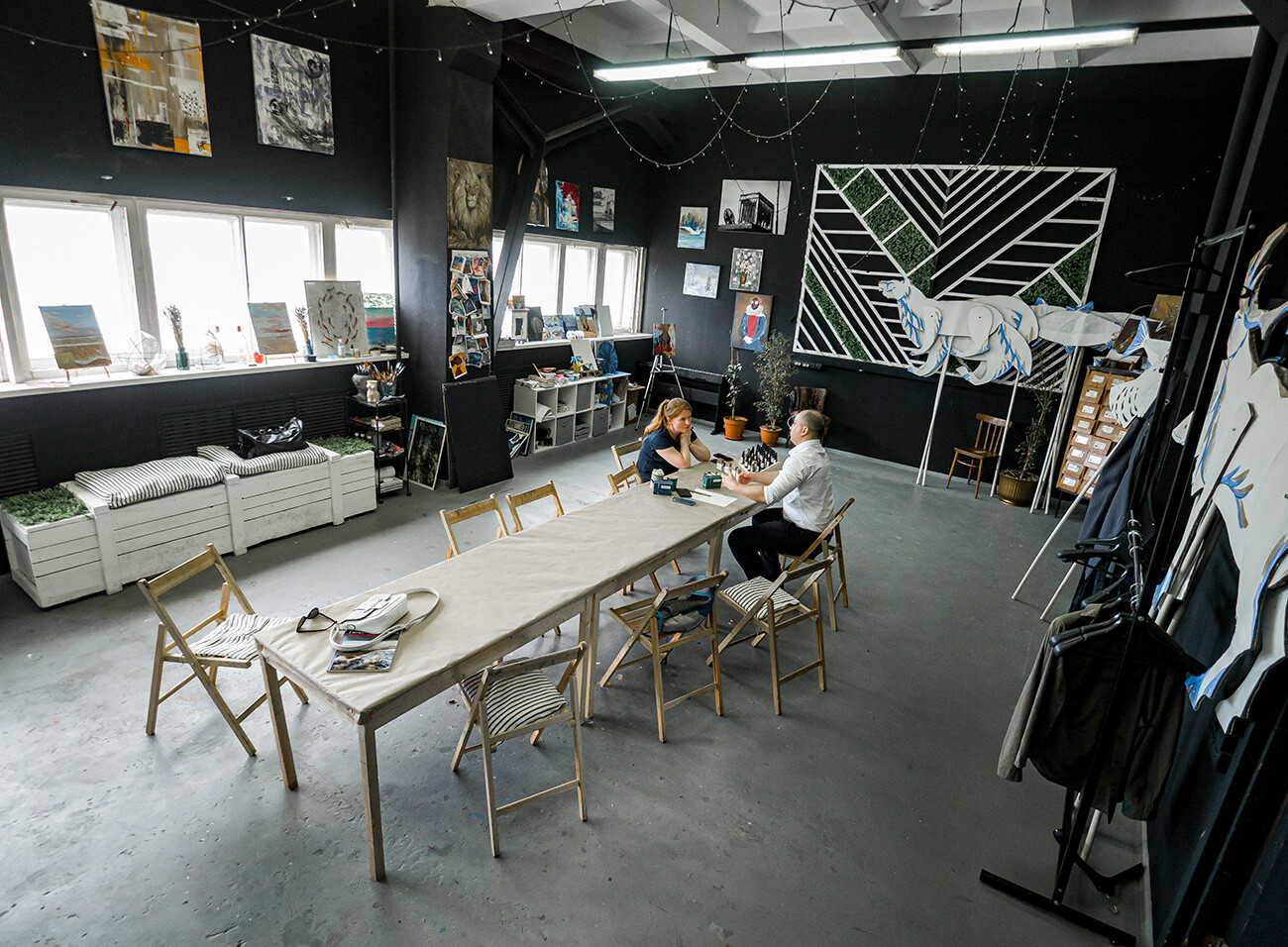 You can see him at the Creative Cluster in the city center.
You can see him at the Creative Cluster in the city center.
He studied how to make perfumes online. A teacher sent him the ingredients, which he studied, described and experimented with, creating his first fragrance formulas. In 2020, he registered his brand, ‘Mr. Bollex Woodmurt’ and developed a whole line called ‘Aromaty Taymyra’ (‘Aromas of Taymyr’), which are now a popular souvenir among visitors to the city. They include ‘Tundra’ with an accent of berries and ‘Severnoye Siyanie’ with mild, soft notes.
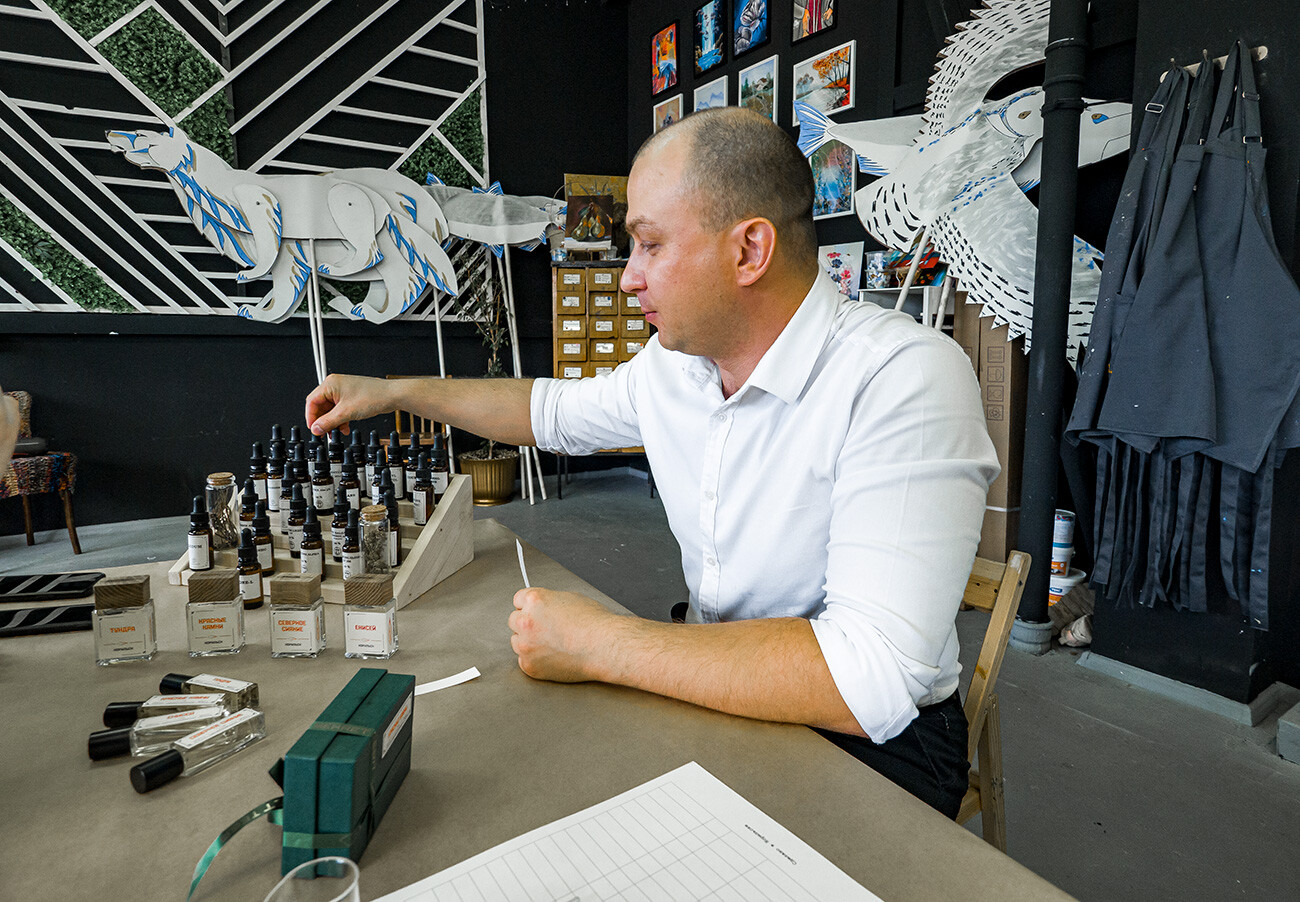
"I had the idea of conveying the play of green auroral light in a frost," Alexei says. The lightest of the fragrances carries the name of Siberia's ‘River Yenisey’: It is "as fresh and translucent as water". And the most unusual one is devoted to a walk to the ‘Krasnyye Kamni’ (‘Red Rocks’) ravine, one of Norilsk's natural attractions. The color red is conveyed using wild rose and redcurrant.
To leave or to stay?
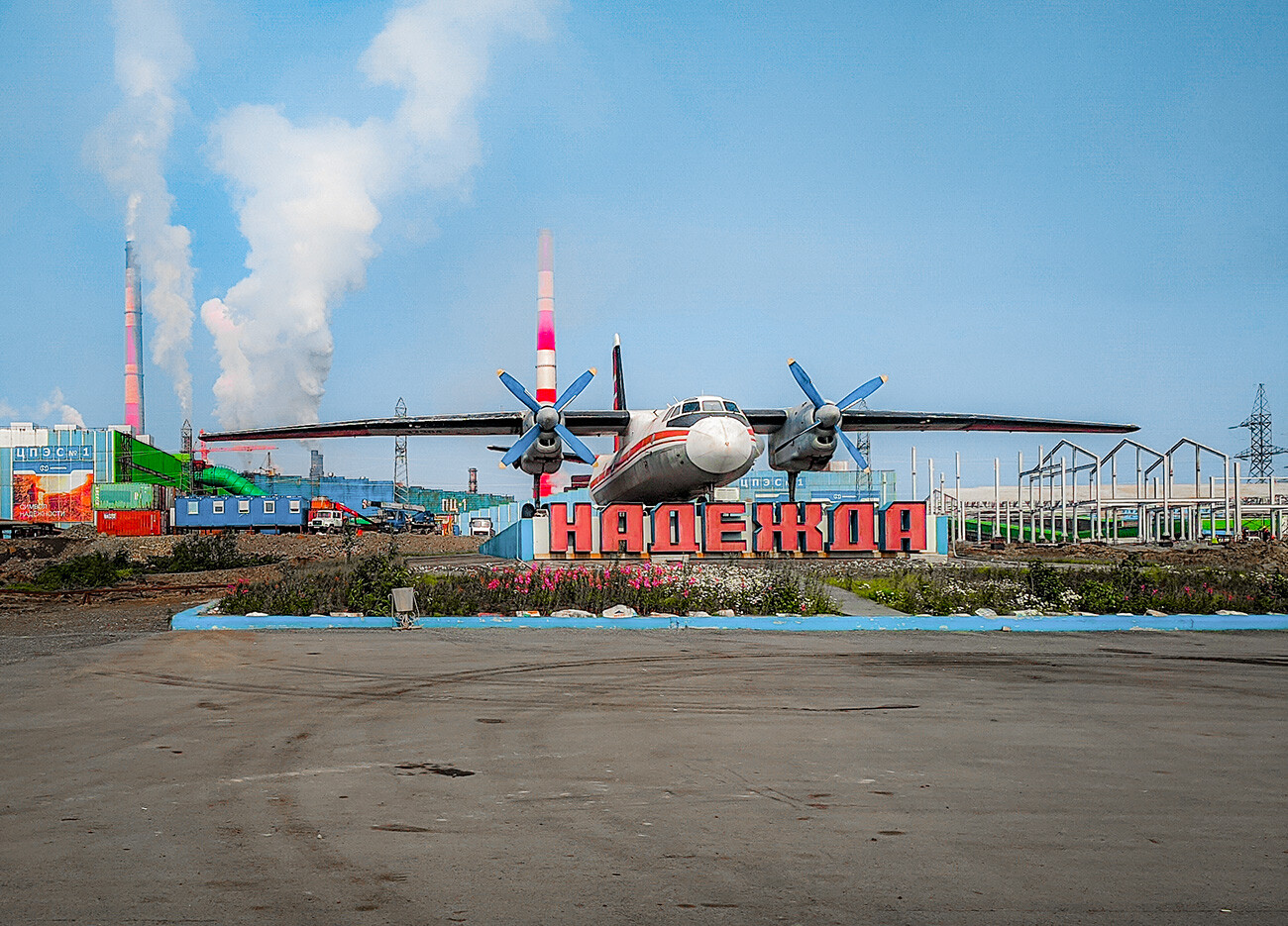 An-26 at the Nadezhdinsky plant. This was the site of the first Norilsk airport in 1950-1965.
An-26 at the Nadezhdinsky plant. This was the site of the first Norilsk airport in 1950-1965.
It was already known many centuries ago that the vicinity of Norilsk holds rich deposits of copper ore. However, proper development of the deposits only started in the 20th century, when the Soviet Union adopted a policy of industrialization and the construction of factories began there.
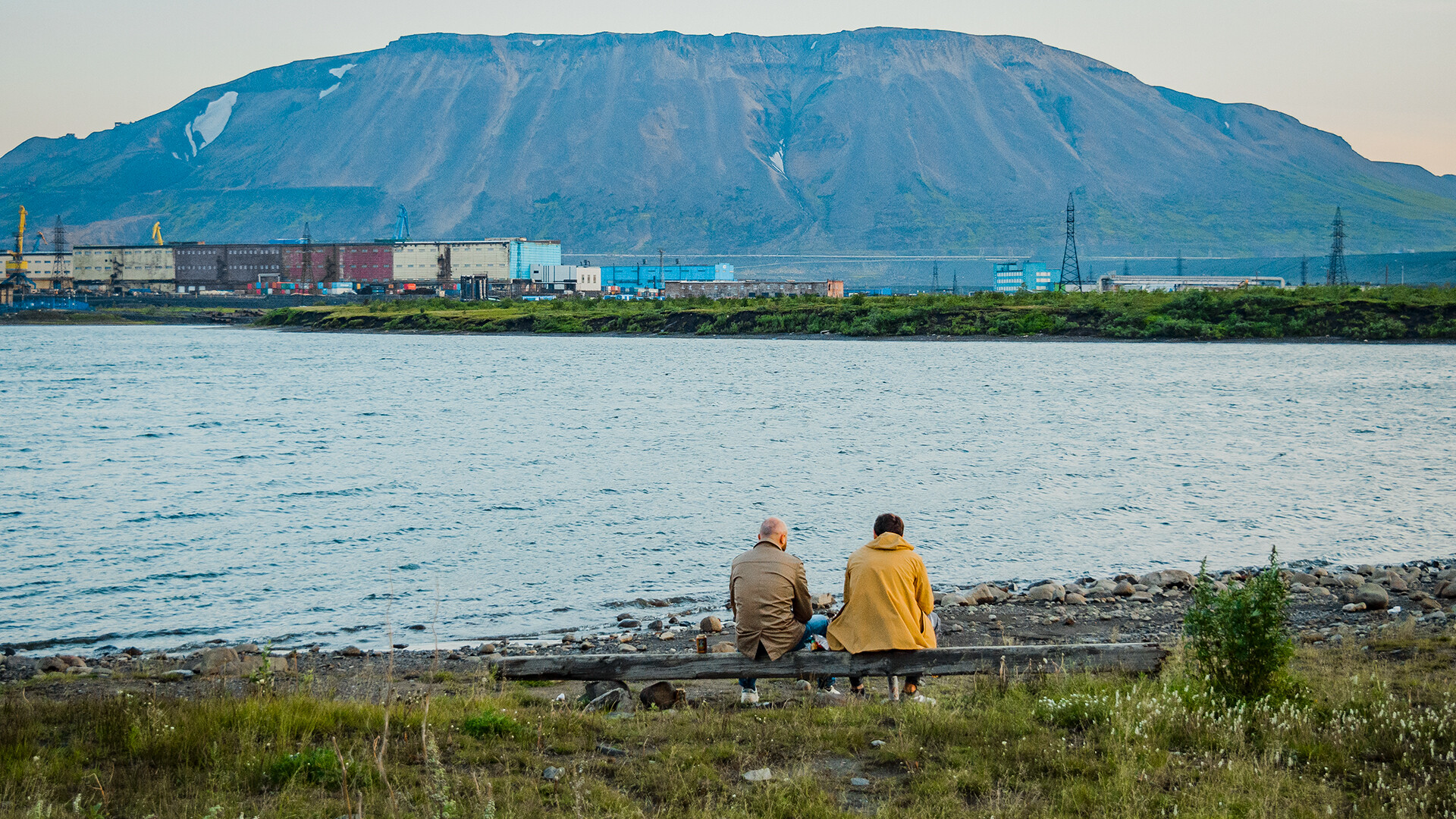 And tomorrow morning it's time to go to the factory.....
And tomorrow morning it's time to go to the factory.....
The city was founded in 1935 by prisoners of the ‘Norillag’ labor camp and, following the latter's closure in 1956, young specialists started arriving from the whole of the Soviet Union.
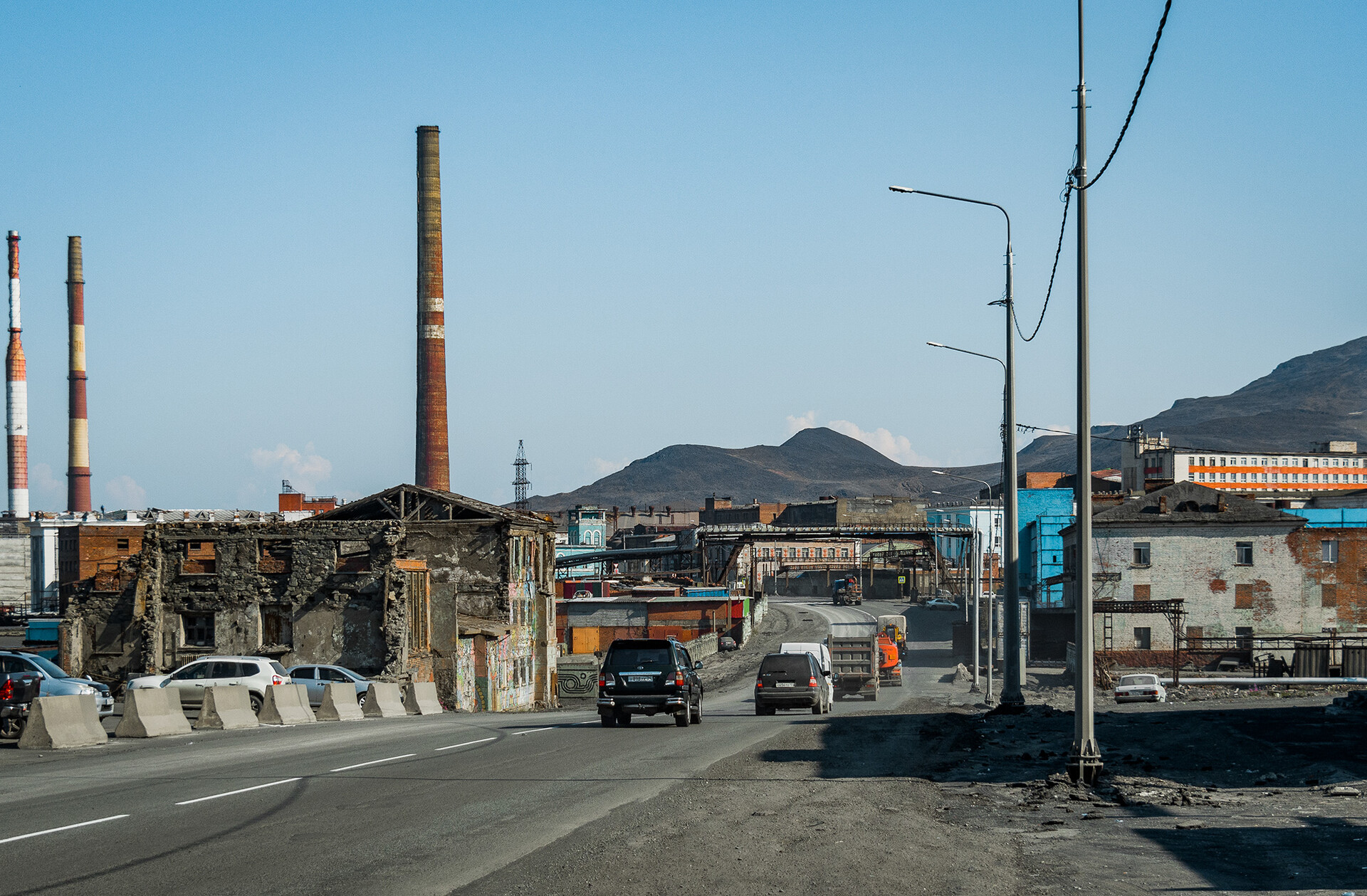 There are a few buildings left of the old town, and all of them are far from the modern one.
There are a few buildings left of the old town, and all of them are far from the modern one.
Until the collapse of the USSR, Norilsk was a closed town, which could not be visited without a special permit. These days, only foreigners need to obtain a permit, while any Russian citizen can visit Norilsk to see the life of the industrial city inside the Arctic Circle with their own eyes. And it's a real endurance test!
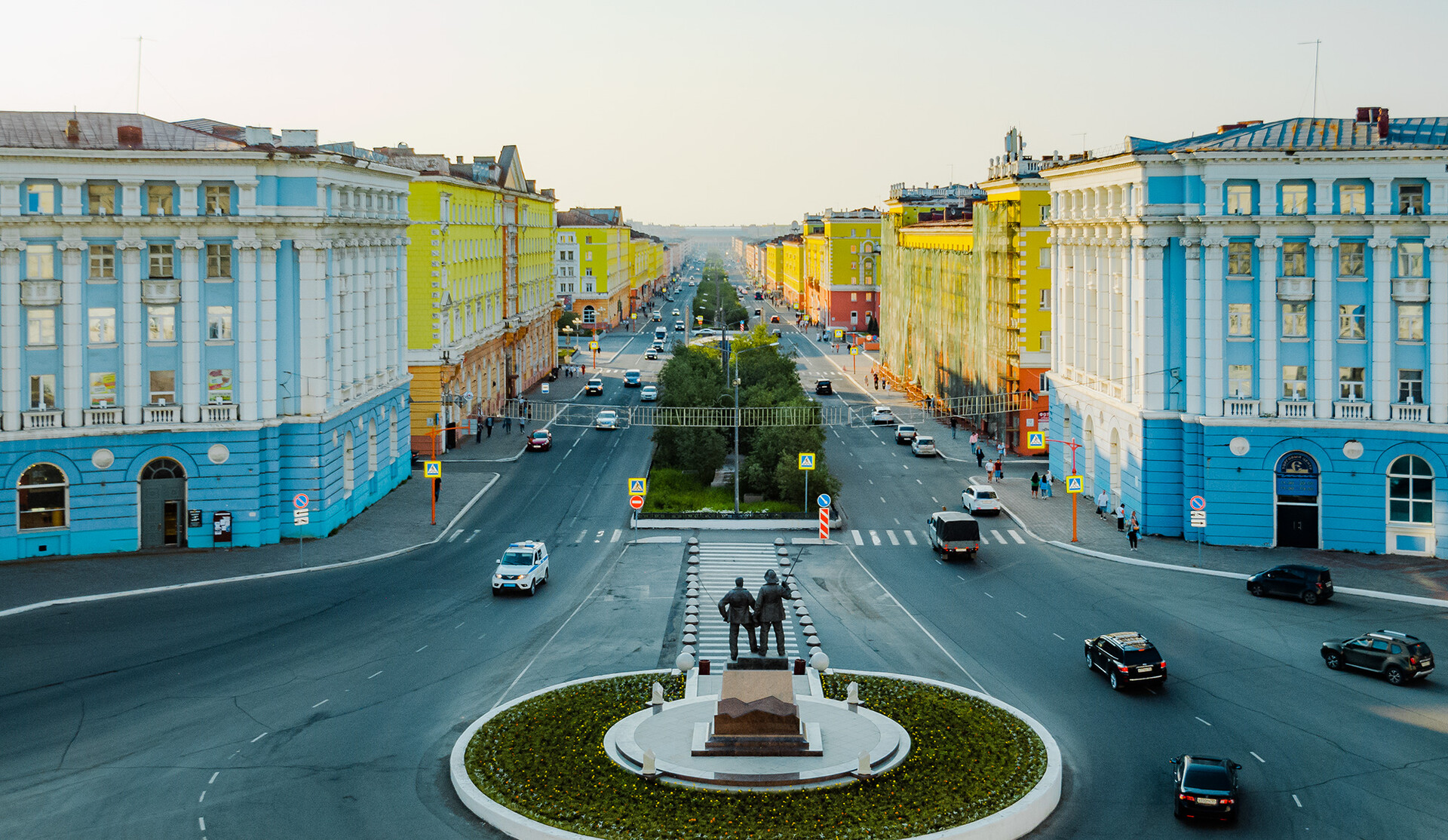 And this is the center of modern Norilsk, built in the style of St. Petersburg.
And this is the center of modern Norilsk, built in the style of St. Petersburg.
Many Norilskers told us they would just like to earn some money and then leave for the "mainland". Those who want to leave the city are helped to relocate by the Norilsk administration and ‘Norilsk Nickel’, although people need to have worked here at least 10 years to qualify for the assistance. There are those who leave after just a few weeks, unable to withstand the winter cold and polar night. But, there are many more people who thought they would only come for a short period and then remained for the rest of their lives.
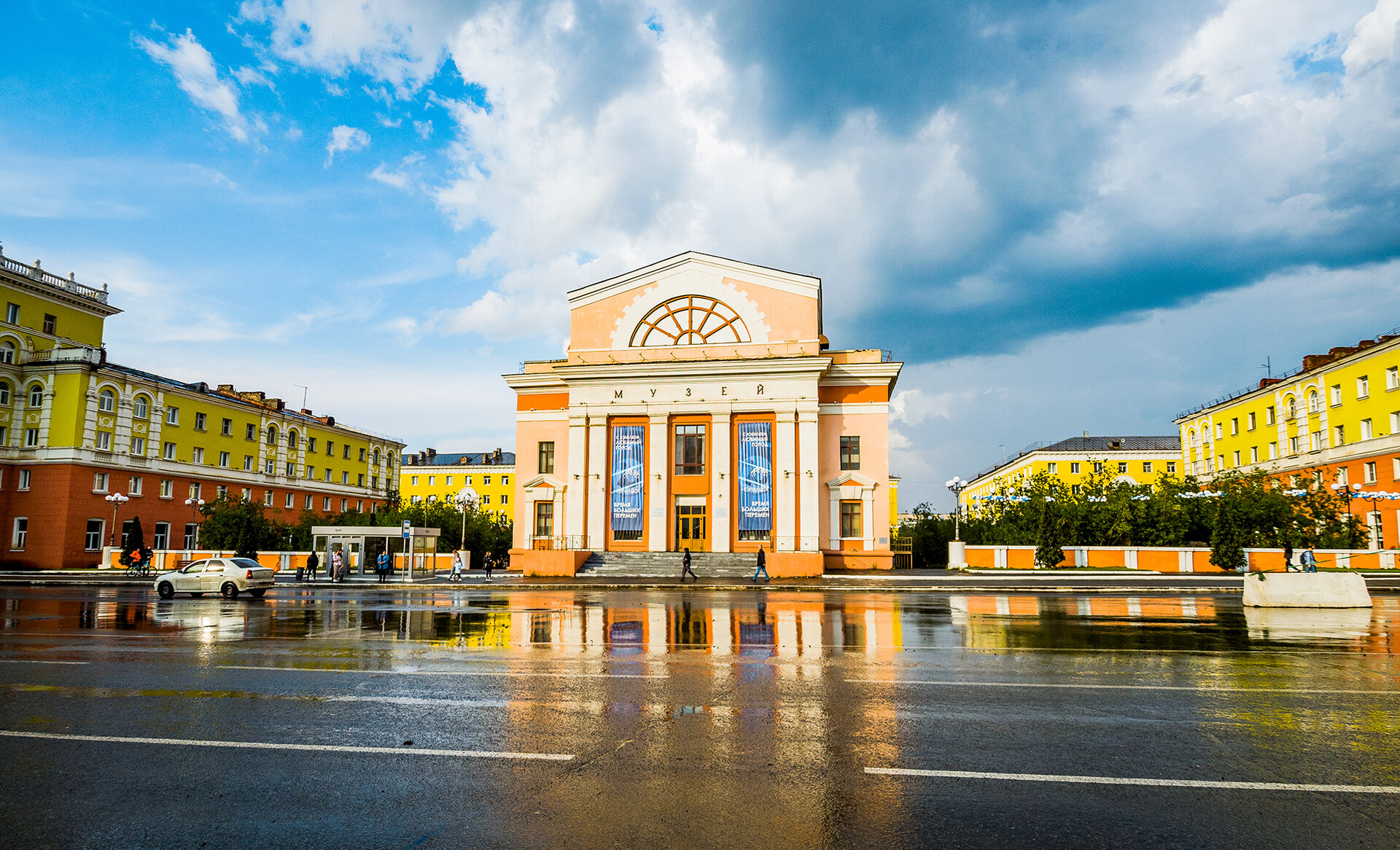 Exhibitions, concerts and performances are constantly taking place in the city. There is no time to be bored.
Exhibitions, concerts and performances are constantly taking place in the city. There is no time to be bored.
Yury, a bus driver, told us how he came to Norilsk from a remote part of Siberia after his army service during Soviet times: "On a Komsomol travel voucher to the shock-work building site of the polar region,” as it was described then. When he was young, he had enough energy both to work a shift at the mine and to "have a good time" - to go out, in other words. He's been working as a driver in recent years, as his health isn't what it once was.
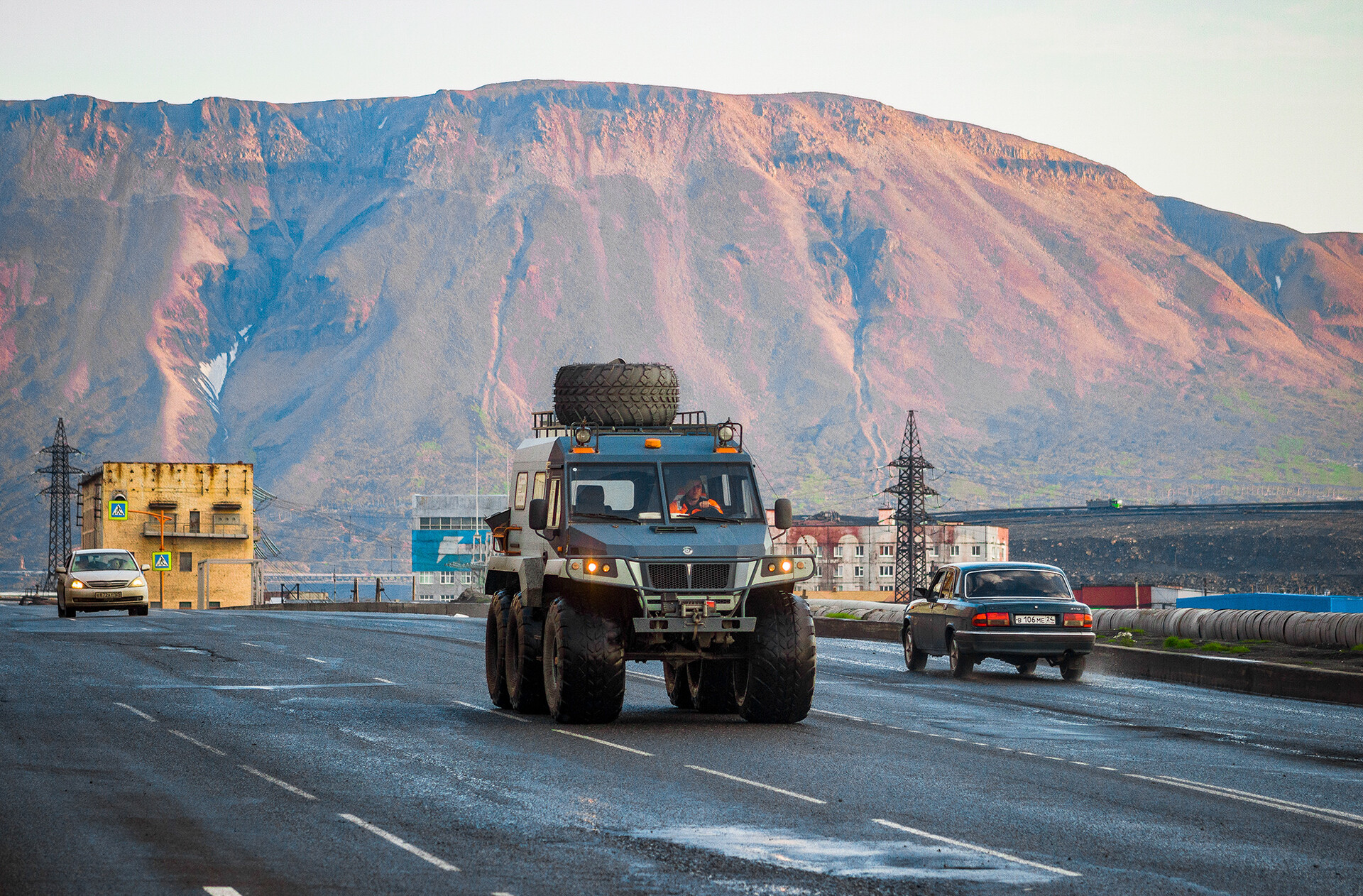 It is common to see such vehicles on the roads in Norilsk.
It is common to see such vehicles on the roads in Norilsk.
During one of their recent holidays, he and his wife visited Volgograd and they liked the city so much that they decided to move there permanently. They've already bought a plot of land and now just have to wait until they start drawing their pension.
Olga and Mikhail Parsov, on the other hand, are well-known artists throughout Krasnoyarsk Territory. They paint, make art objects and souvenirs on northern subjects and frequently hold creative soireés. They are among the Norilskers who have managed to capture the northern tranquility. Olga says their daughter grew up and left, but she and her husband find Norilsk inspiring. And they don't plan to move away.
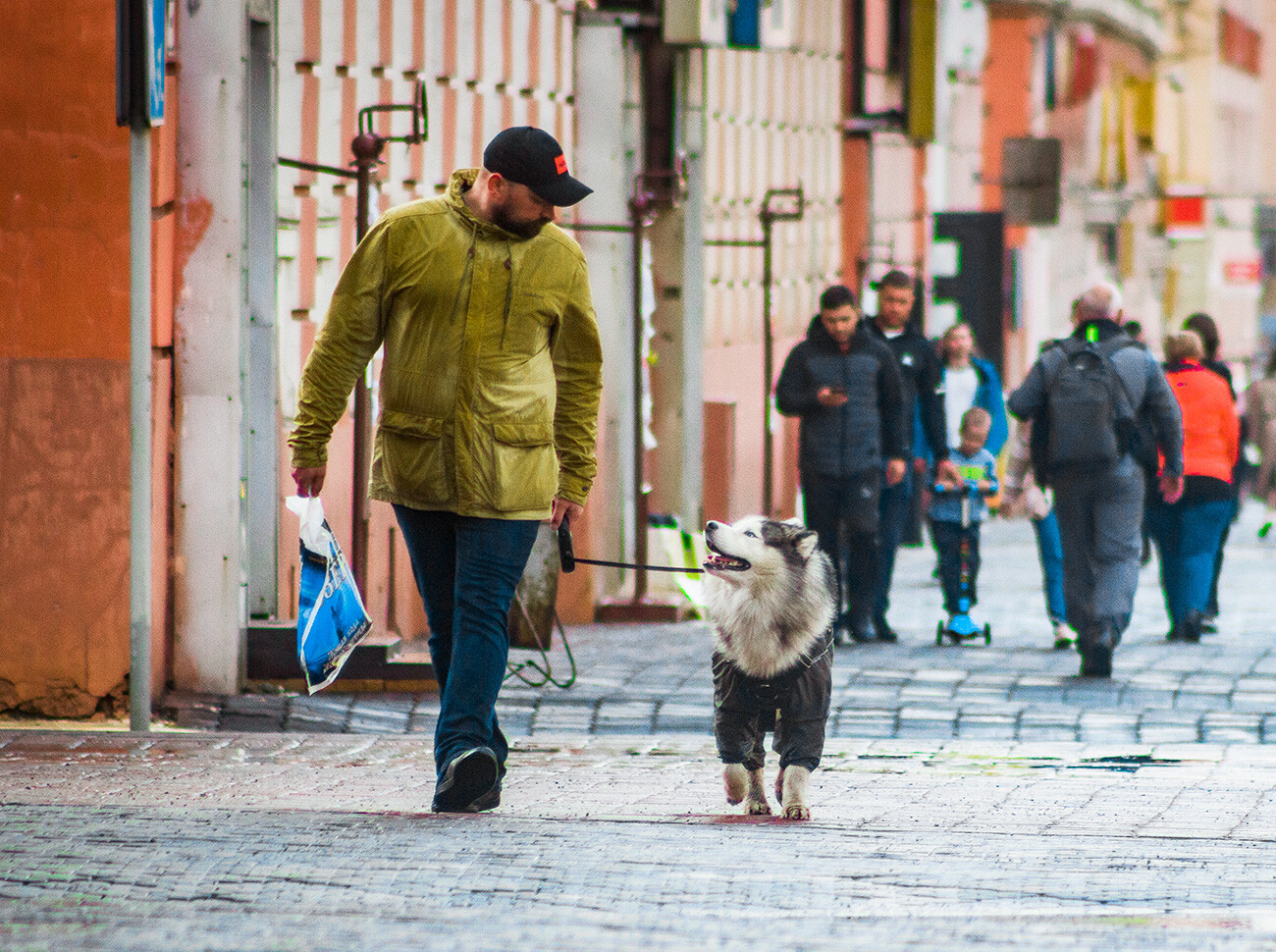 "So, to the Putorana Plateau?"
"So, to the Putorana Plateau?"
Life in Norilsk would be impossible without the port of Dudinka, 90 km away on the shores of the great Siberian Yenisey River. Essential goods and produce are transported there from the "mainland" and the Norilsk Combine's output is shipped out of the port. Navigation is possible all year round, but there is one catch: It is the only port in the world flooded each year when the snow melts. We shall report on it in a future article. Stay tuned!


